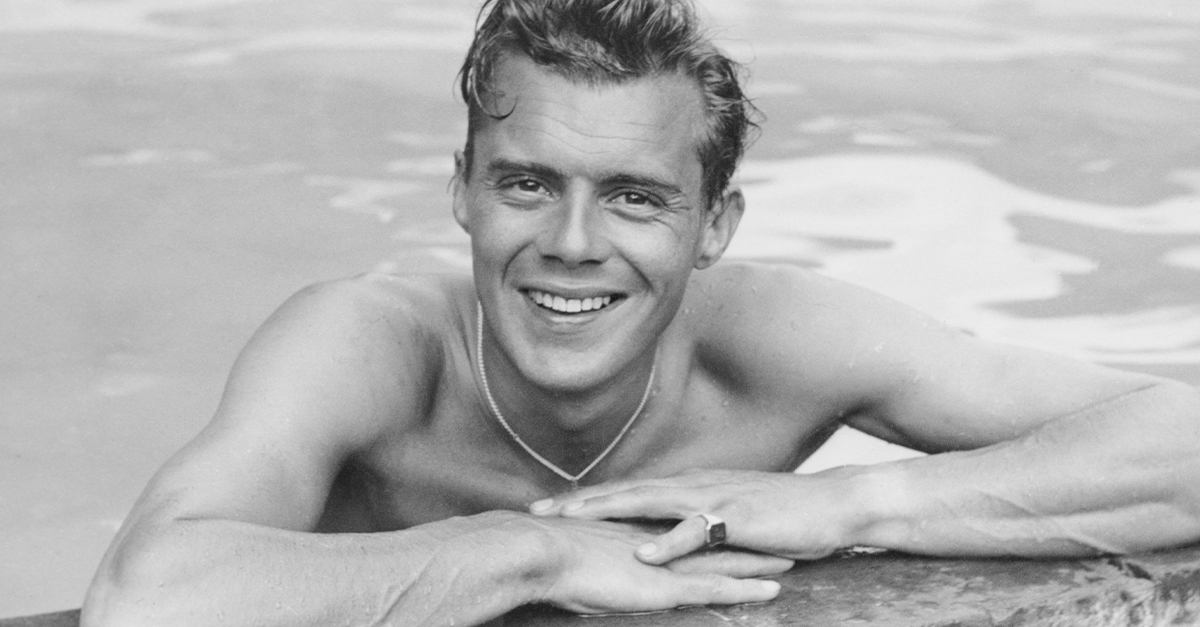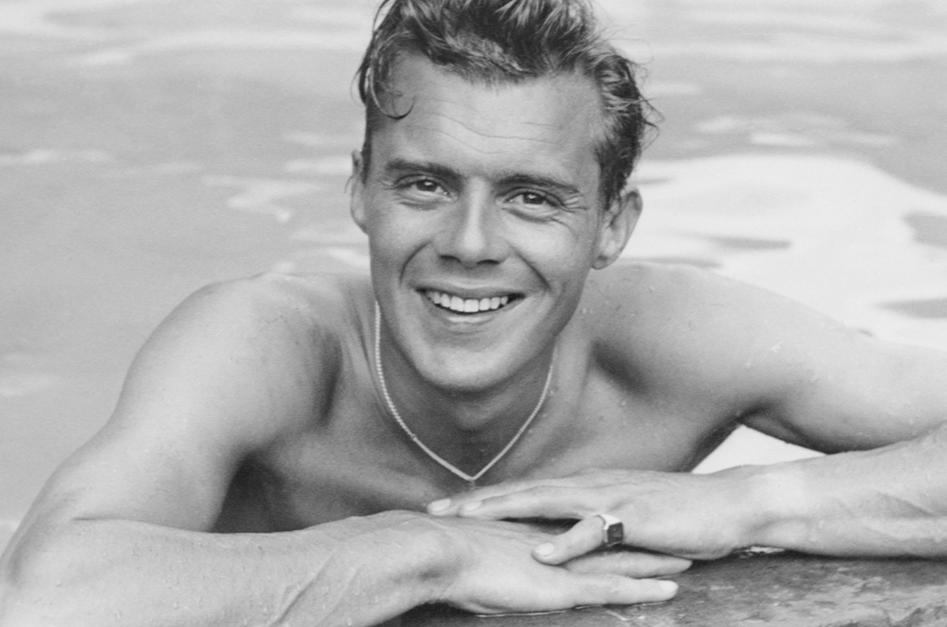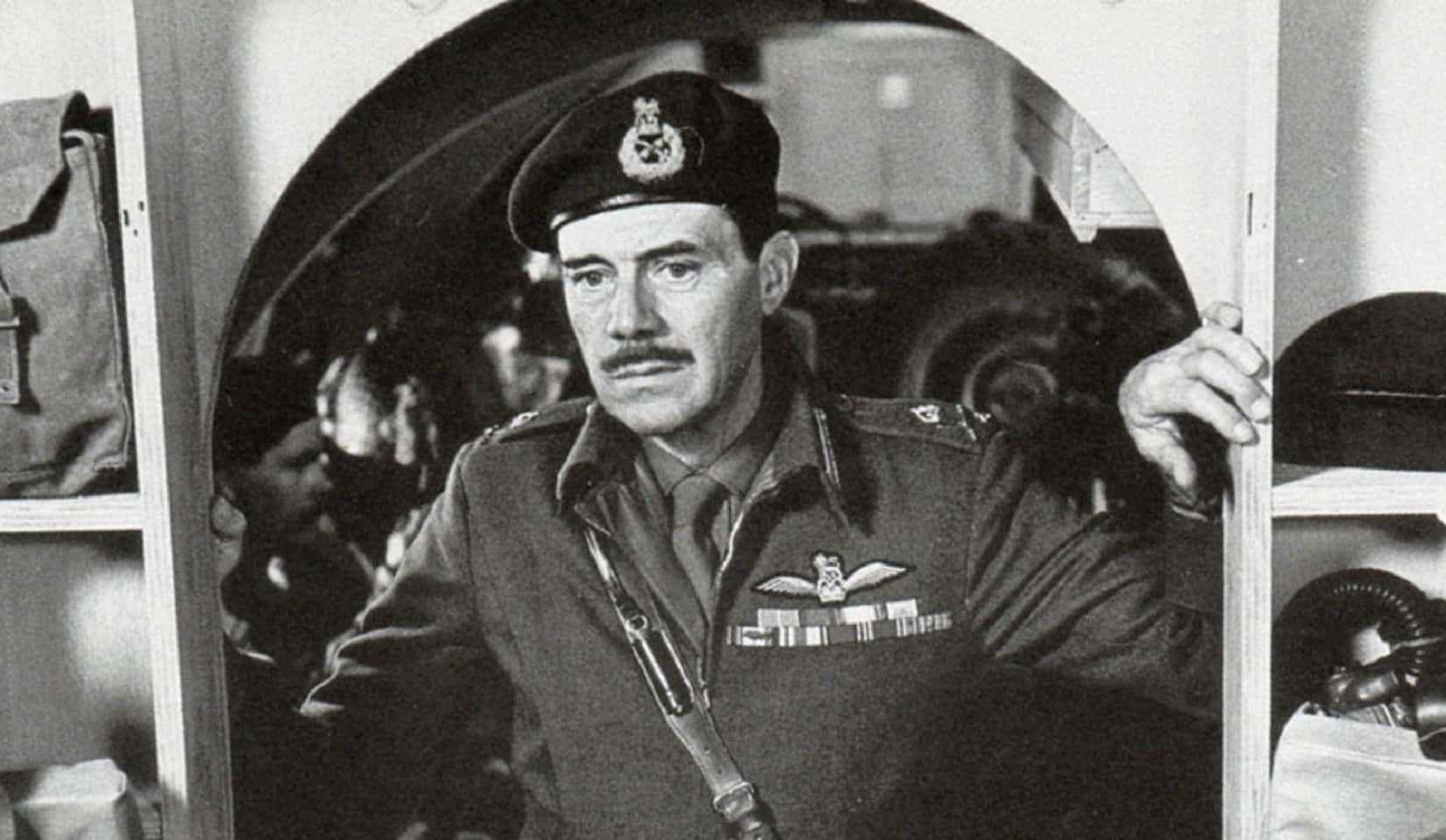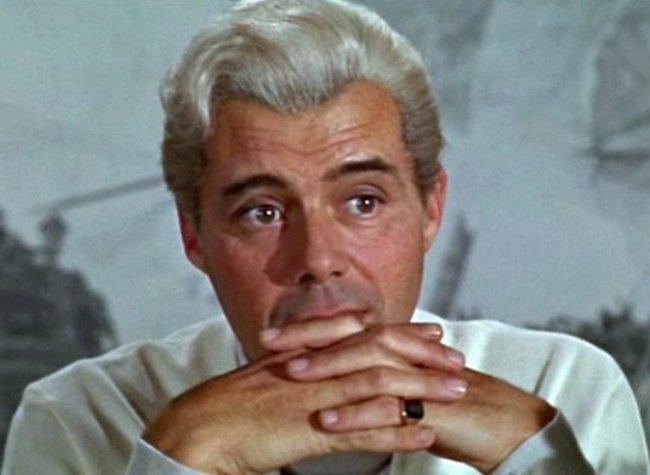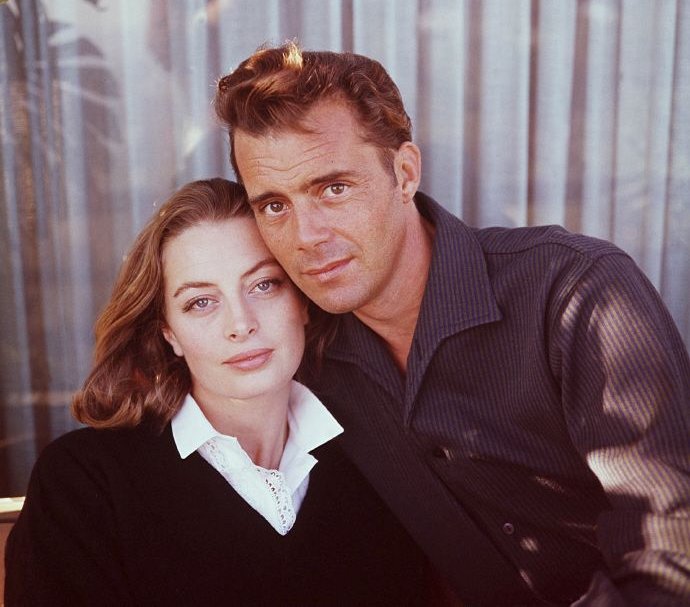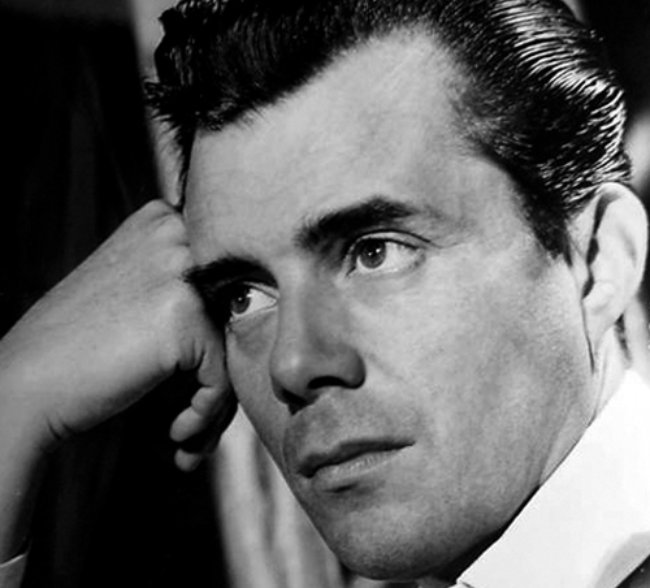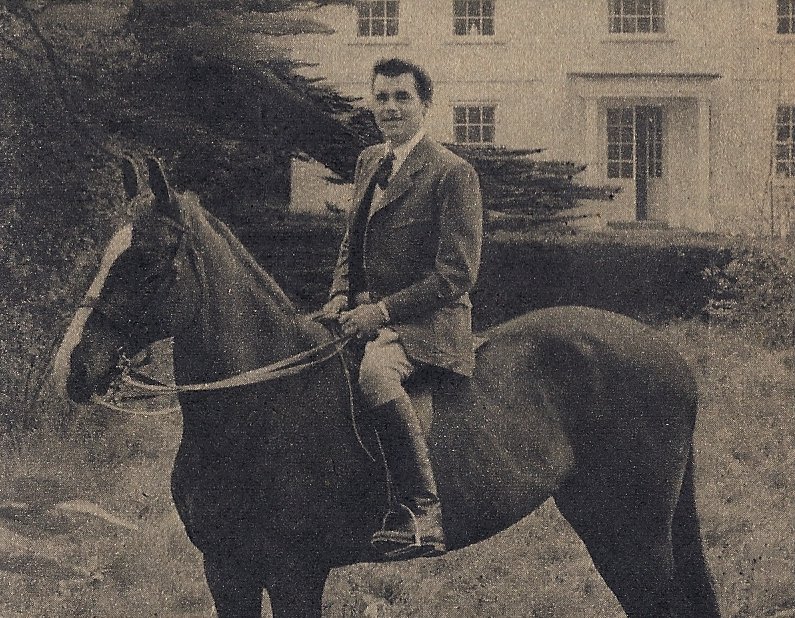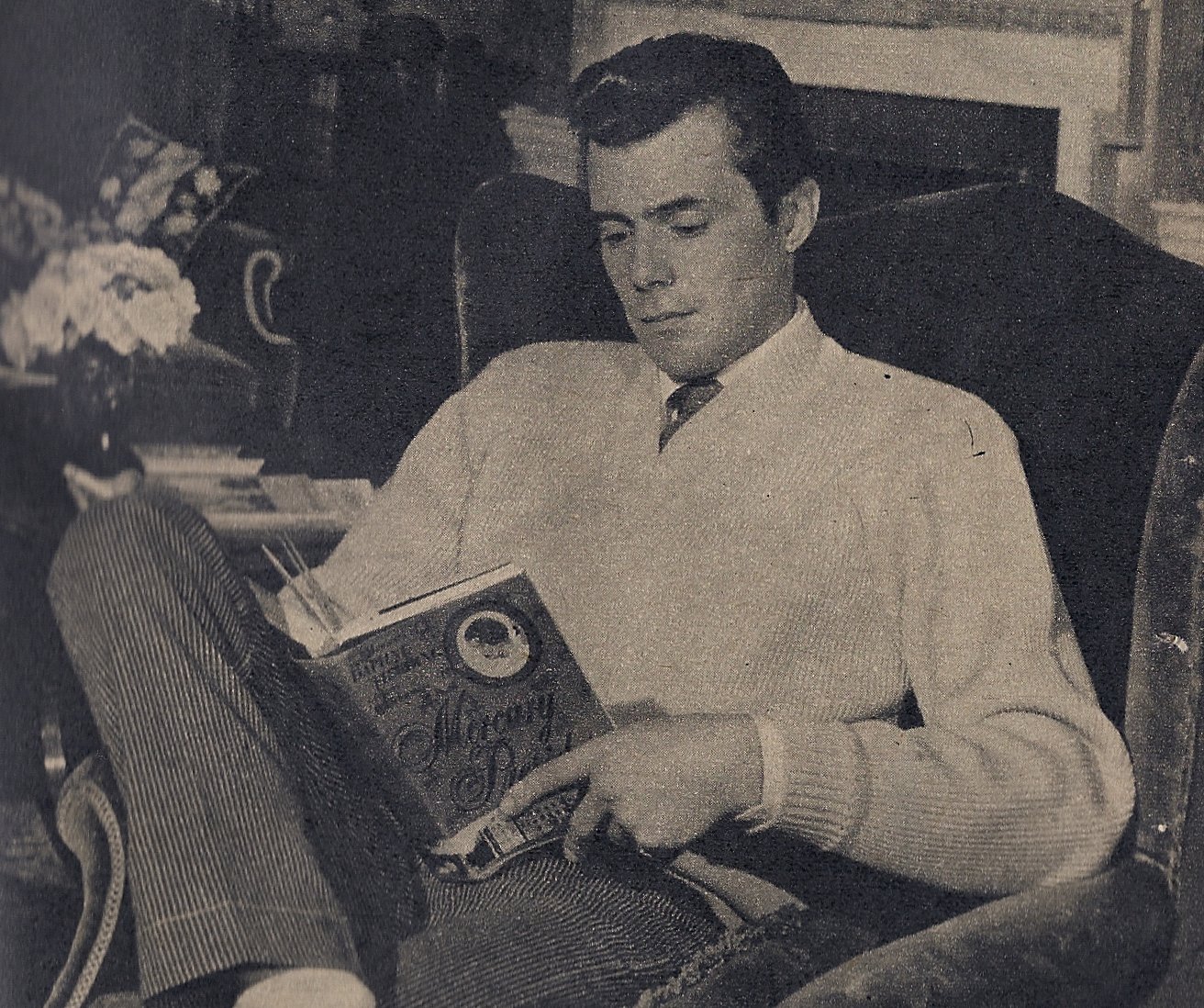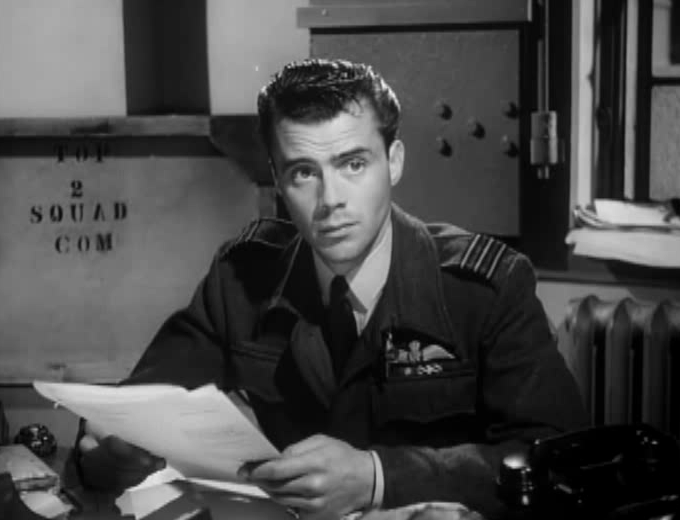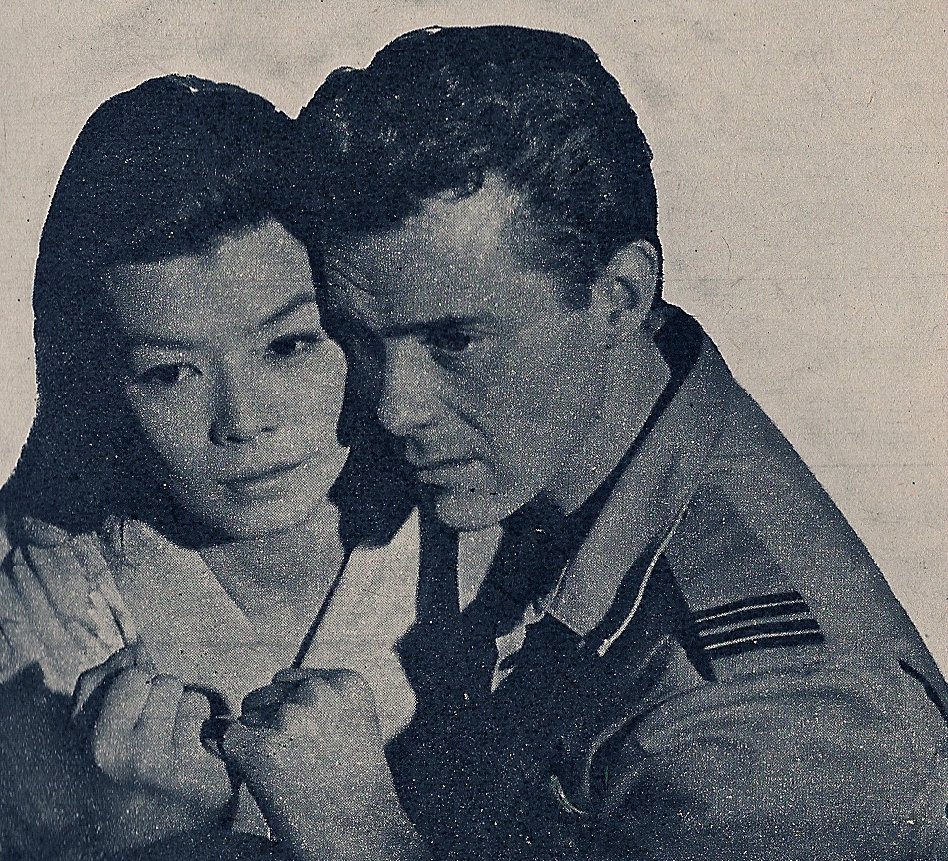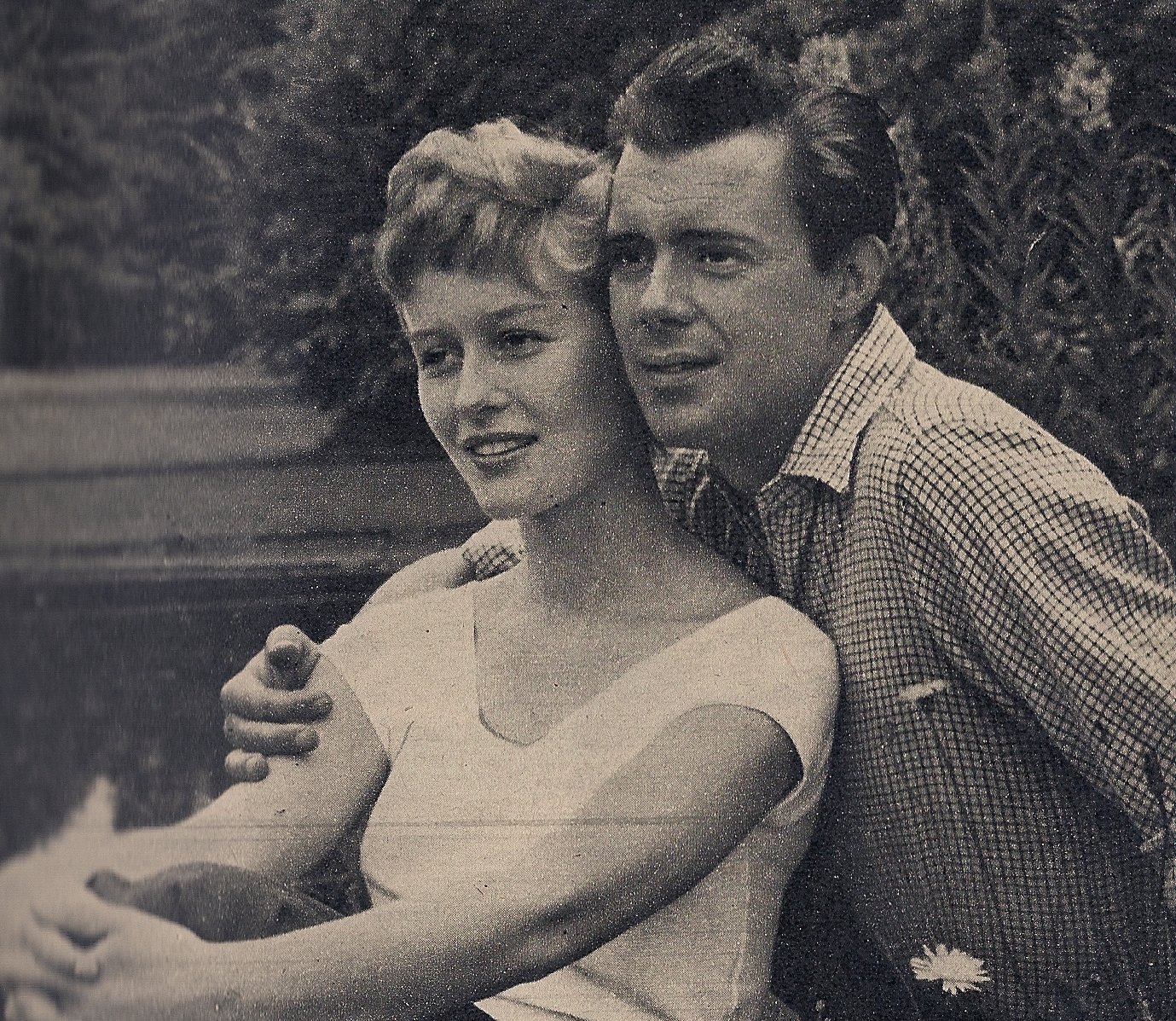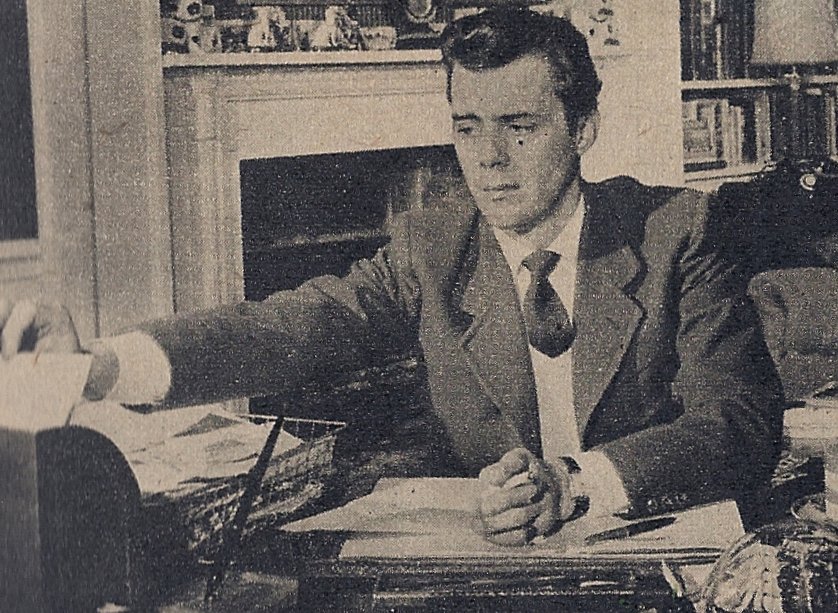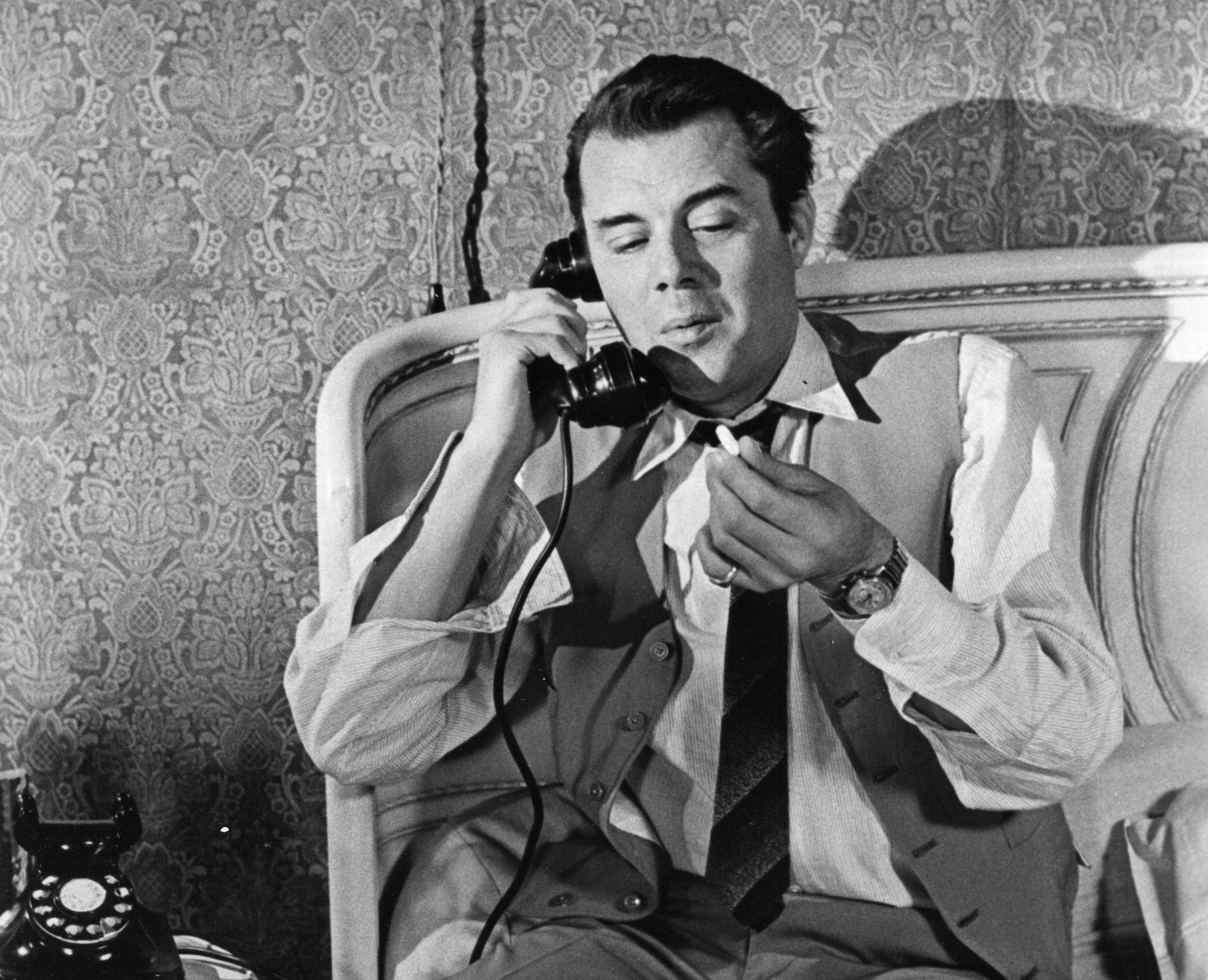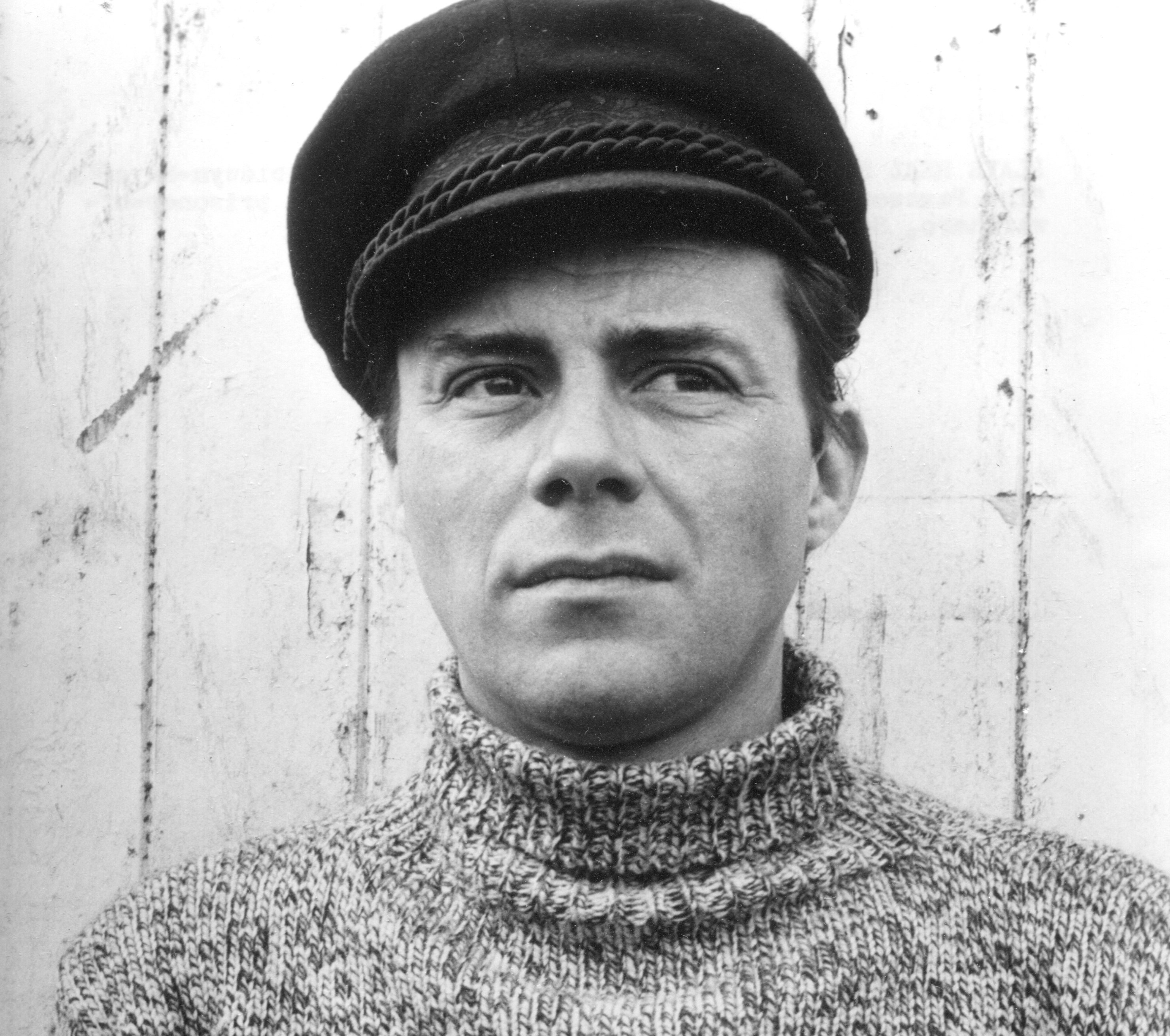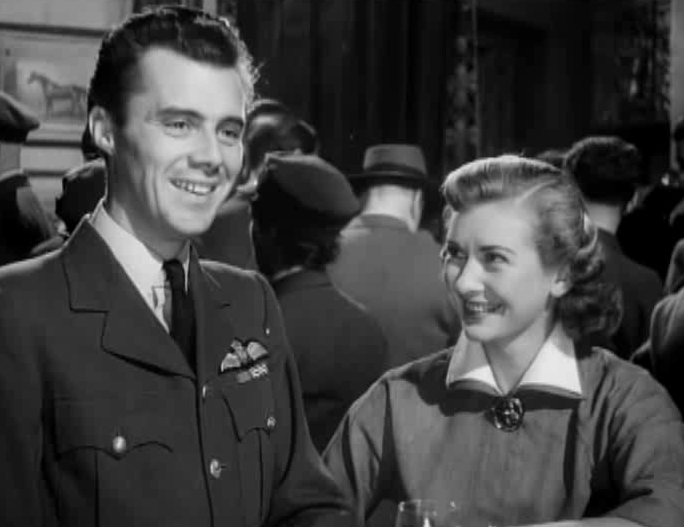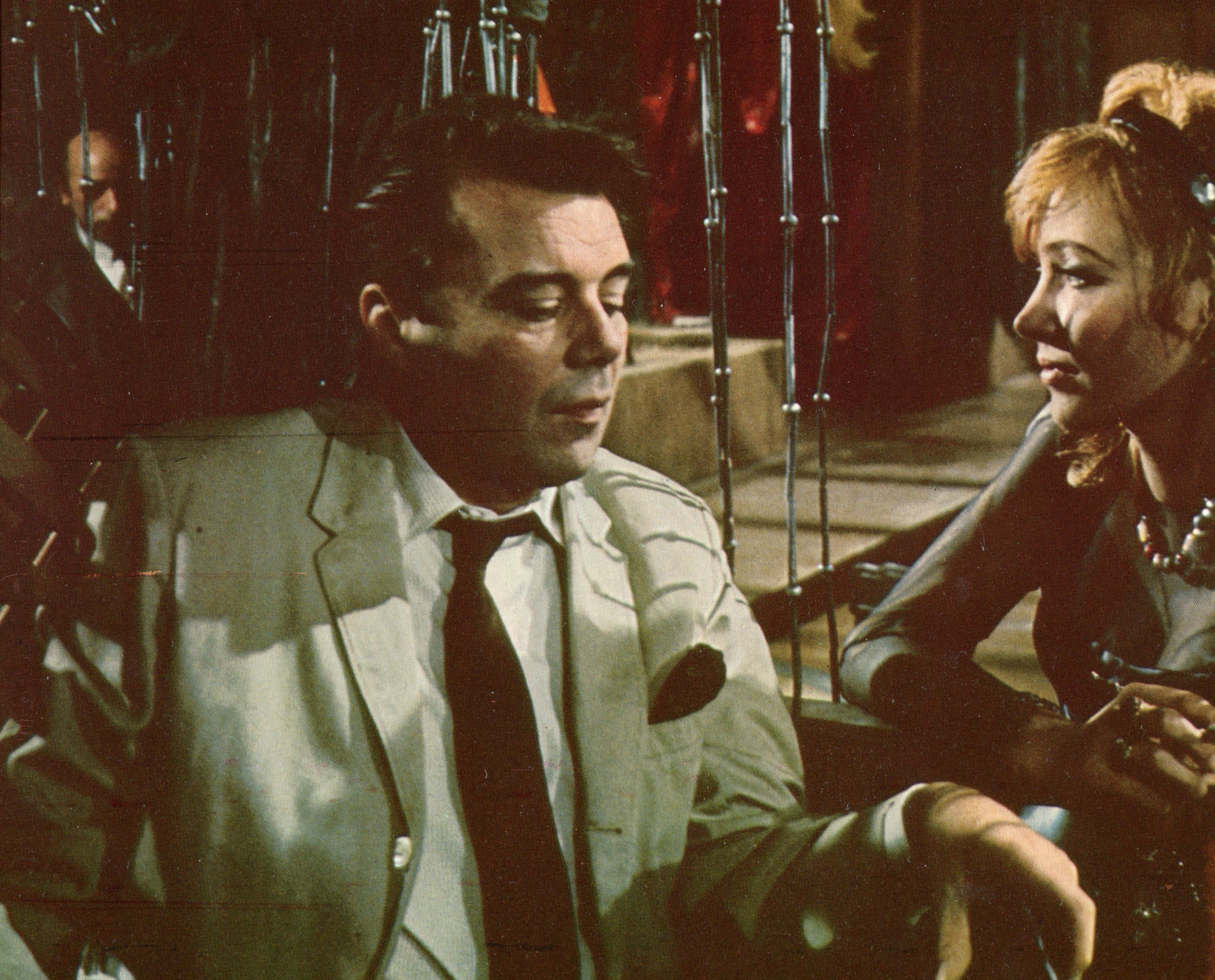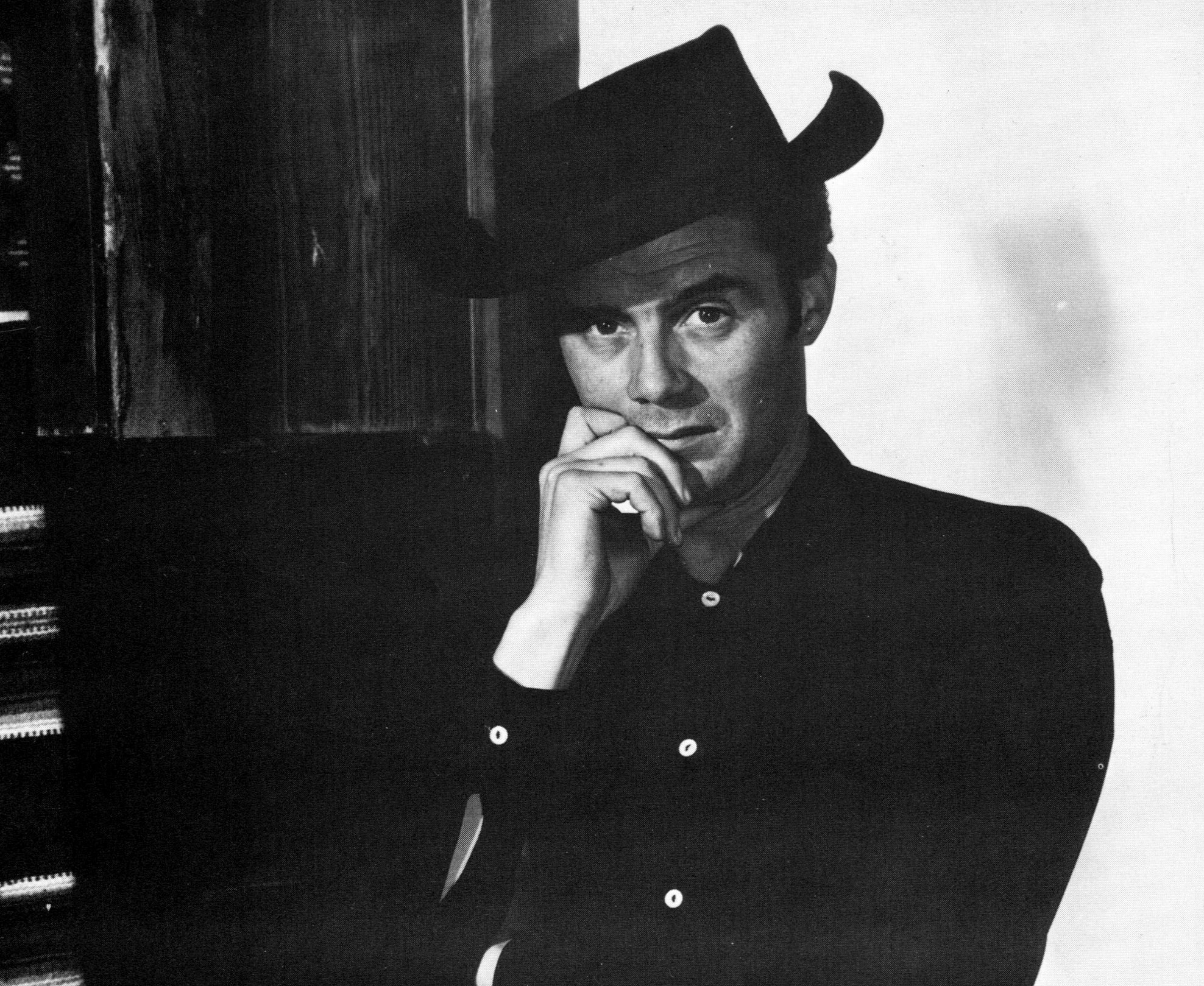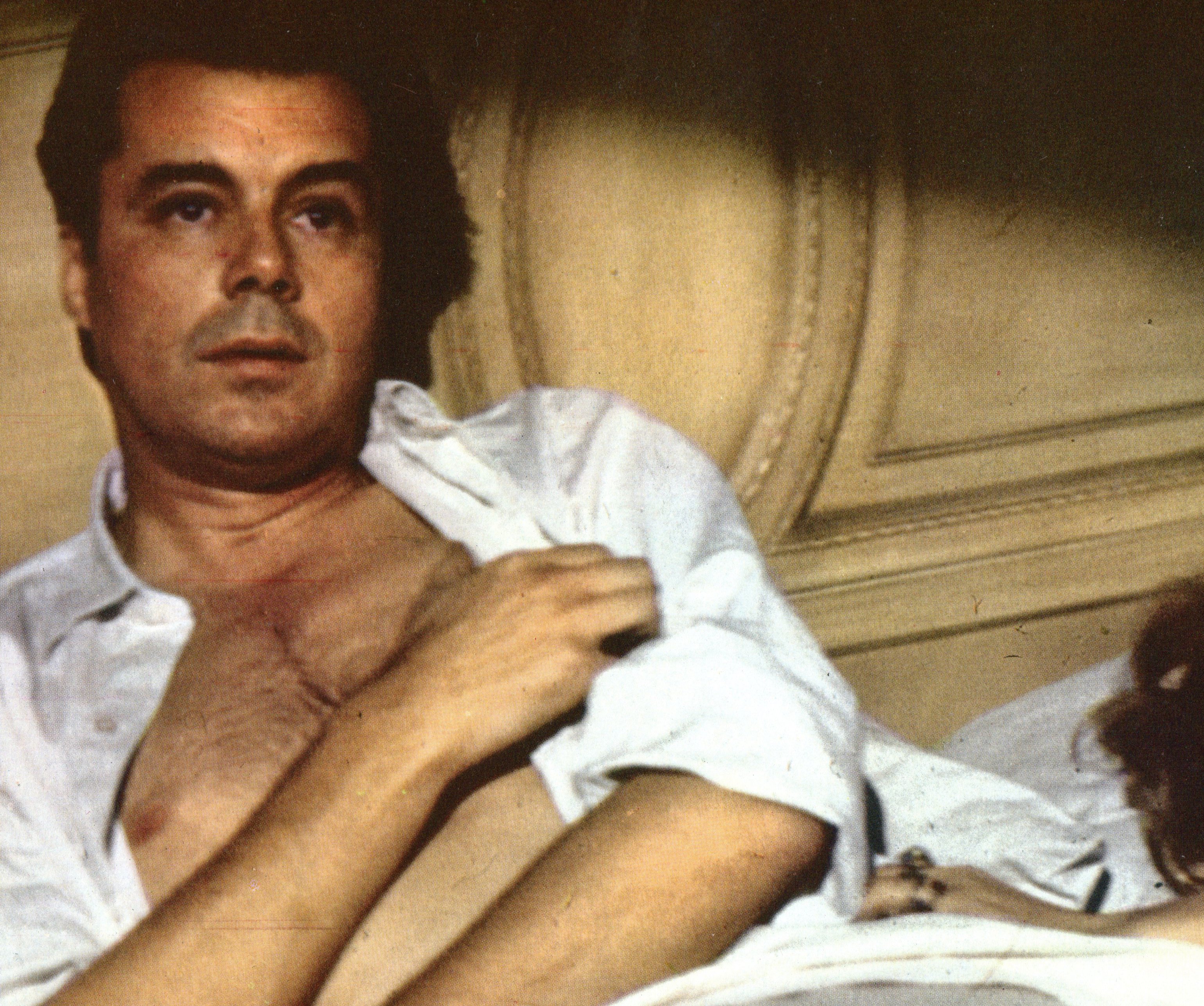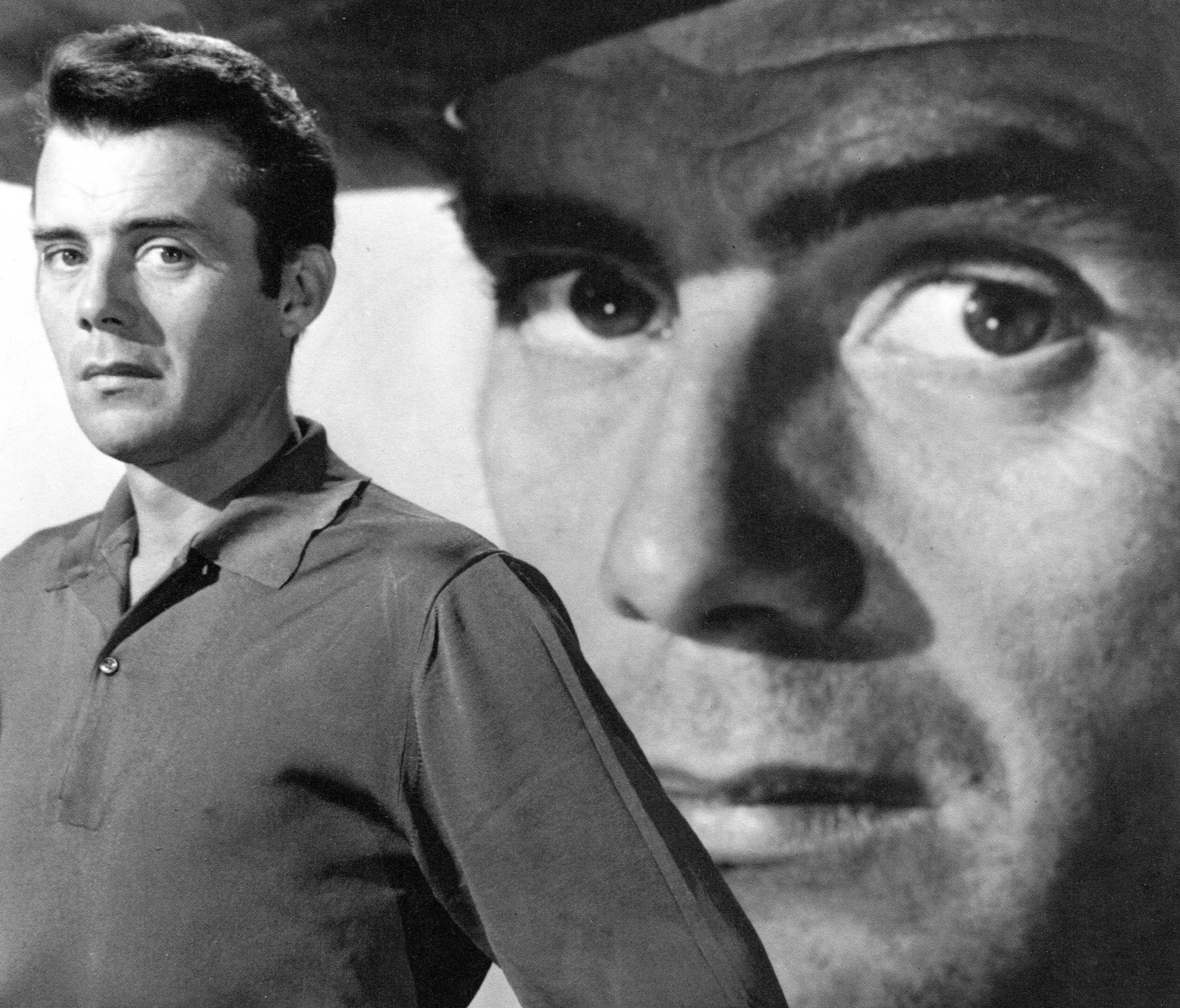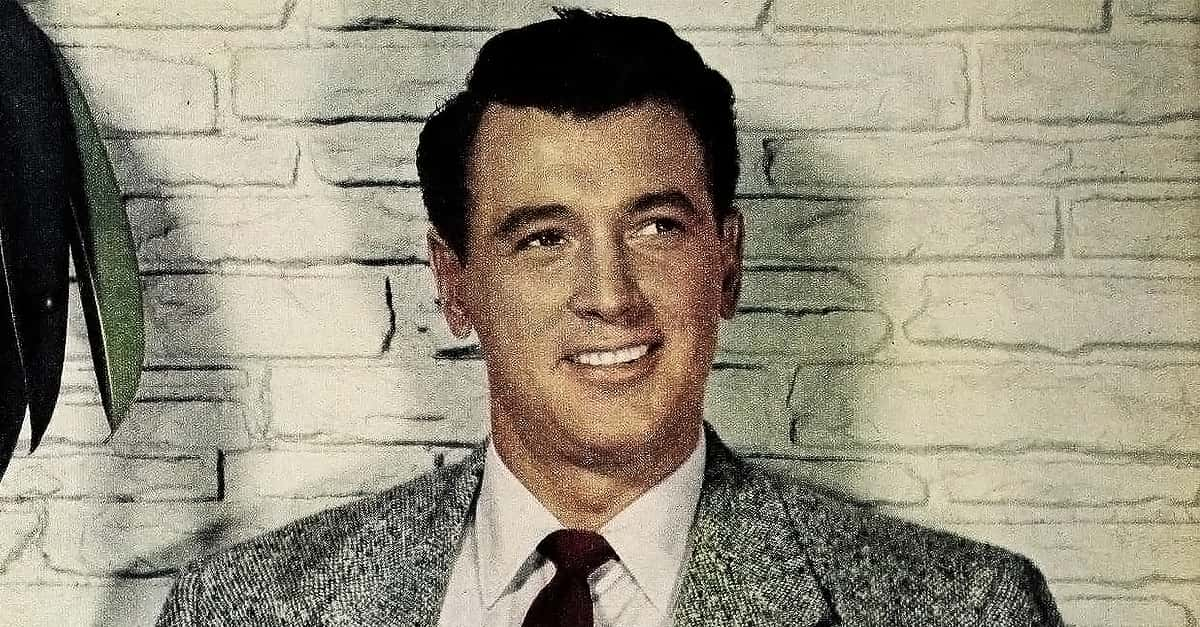Dirk Bogarde played countless roles on and off screen—but he kept just as many secrets, including one with the power to destroy his life.
1. He Lived Many Lives
Dirk Bogarde was a WWII hero, a heartthrob, a controversy, an advocate for unpopular causes, a writer, and so much more. Above all, the Brit was a mystery. Few stars could reinvent themselves quite like Bogarde—or keep as many secrets. No one had shared so much, yet shared so little at the same time.
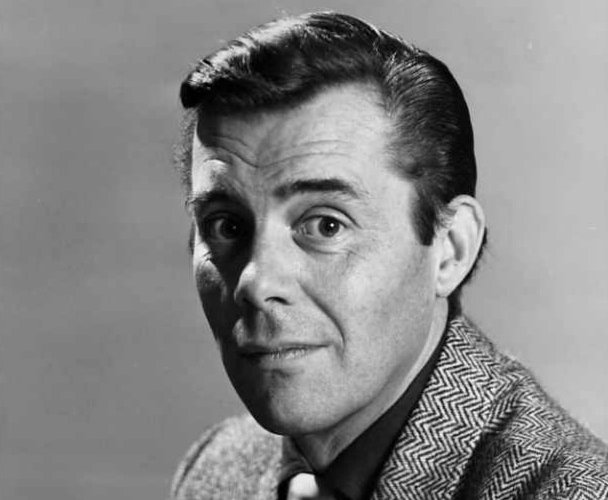 NBC Television, Wikimedia Commons
NBC Television, Wikimedia Commons
2. He Was A Struggling Actor
In 1921, Bogarde was born into an upper middle-class, but unhappy family. His parents even once sent him away to live with his strict aunt and uncle. But nothing could squash the acting bug. Bogarde took whatever backstage and uncredited roles he could get his hands on.
He once declared, “I knew that nothing would deflect me from my path as an Actor. And nothing did”. But WWII tried its best.
3. His Career Was Interrupted
When WWII broke out, Bogarde was: 18, a civilian, and scraping by at one of the few London theaters still open. This couldn’t last. The worse the conflict got, the more quickly his time as a civilian ran out. But not before he ran into Anthony Forwood. Though the older British actor offered to represent him after WWII, they eventually fell out of touch.
However, their story was destined to be one for the ages. But more on that later.
4. He Served His Country
It was time: Bogarde’s country needed him more than the stage did. The 22-year-old felt many things about joining the army, but optimism wasn’t one of them. His work as an intelligence officer took him all over Europe and Asia. This was a non-combat role, so he didn’t directly take lives, pull triggers, or detonate explosives. But Bogarde had to make equally painful decisions.
5. He Made Tough Calls
In his old life, Bogarde made choices about what to have for dinner. Now, he decided who got to live and who had to die. One of the nastiest parts of his job was selecting villages to drop explosives on. It was for the greater good, but that didn’t make it much easier for Bogarde.
He was already having a rough time—but things took an even darker turn.
6. He Was Unprepared
By April 1945, WWII in Europe was winding down, but Bogarde’s nightmare was just getting started. Work brought him near the Bergen-Belsen concentration camp. Bogarde didn’t know much about these camps; he only hoped to find a pair of nice German boots to wear.
We don’t know if Bogarde got his boots, but we do know that he got a lifetime supply of trauma.
7. He Witnessed Horrors
Shoes were the last things on Bogarde’s mind the moment he walked into the camp. He remembers how "The gates were opened, and then I realized that I was looking at Dante's Inferno…all around us there were mountains of dead people..." Bogarde claimed he was one of the first people to liberate this camp.
He spent the rest of his life making sense of this one horrific day.
8. He Had A Lot of Trauma
The old Bogarde perished in WWII. The new one came home with three massive pieces of baggage. The first was survivor’s guilt. Bogarde survived while millions didn’t. The second piece was Bergen-Belsen. Until Bogarde stepped foot into that camp, he didn’t know such depravity and suffering were possible.
Third, Bogarde had to face the fallout of his choices. He made a spine-chilling realization about this.
9. He Faced His Actions
Some chapters of Bogarde's WWII experience were like a horror movie come to life. He returned to the villages—or what was left of them—destroyed on his recommendations. Remembering one occasion, he described settling in a field, next to a row of footballs, to paint the landscape of Normandy. He kicked one of the balls.
As it rolled down the rubble, Bogarde realized he was not sitting next to toys after all.

History's most fascinating stories and darkest secrets, delivered to your inbox daily.
10. He Made A Spine-Chilling Realization
What Bogarde thought were footballs turned out to be children’s heads. He made this discovery one kick too late. It gets even worse. Bogarde later learned that the ruins he sat beside had buried a convent of children and nuns who had fled class during bombings. Unfortunately, though they thought they were safe, nearby buildings ultimately collapsed onto them.
11. He Changed
Bogarde went back to his old life, but he was a different man. After his service, movies lured him into the next chapter of his life. He changed his name from Derek to Dirk. Bogarde hustled in minor roles until he hit the jackpot—his big break. The 27-year-old waited his entire life—and survived an entire war—for this moment.
12. He Got His Big Break
Some found the Rank Organisation and Bogarde’s contract surprising. Turns out, most of the studio’s stars were conventionally attractive and fell into archetypes. They were easy to digest. Meanwhile, Bogarde had dark looks, a high-pitched voice, an ordinary physique, and a mystifying charm. But he had talent—and then some. Once again, Bogarde’s life was about to change.
13. He Dumped Friends
Bogarde described how “Old friends… began to fall away”. Not quite. When Bogarde took his friend Denis Thomas out for lunch, Thomas expected small talk. Instead, Thomas Bogarde broke up with him: “I’ll be mixing and dealing with people you wouldn’t even want to sit down with. I’m telling all my other friends the same, and also saying goodbye to each of them. You’ll never see me again”.
14. He Got His Breakout Role
Bogarde was right: These friends never saw him again. They could only watch on screen as their ex-friend became a star. 1954's Doctor in the House wasn’t supposed to be successful. Audiences were allergic to movies about hospitals. Instead, the film was a hit and made Bogarde a household name. But this newfound fame had many dark sides.
15. He Couldn’t Cope
The dust from WWII barely settled before Bogarde had to cope with a different type of crazy. It was too much, too soon. Bogarde confessed, "First there was the war, and then the peace to cope with, and then suddenly I was a film star. It happened all too soon”. But just like what Bogarde did in WWII, he couldn’t take it back.
16. He Was A Heartthrob
Bogarde became irresistible to box offices, and armies of girls. He wasn’t just a movie star, he was a heartthrob. The media manufactured his dreamy, unmarried, and available image. Hook, line, and sinker. Bogarde admitted, “I had to go along with it, I was selling the product—and the product was me”. This led to unacceptable encounters with fans.
 Mayflower Productions, Appointment in London (1953)
Mayflower Productions, Appointment in London (1953)
17. He Had Scandalous Rumors
Bogarde’s fans loved him, but some had insane ways of showing it. One day, Bogarde opened a newspaper and made an interesting discovery about himself. He read about how officers caught him drinking and driving. And how he punched one of them when they dragged him to the station. This was news to Bogarde.
Turns out, a fan had created this false rumor—but this was just the tip of the iceberg.
 Mayflower Productions, Appointment in London (1953)
Mayflower Productions, Appointment in London (1953)
18. He Had Crazy Fans
One day, a Rolls-Royce pulled up to Bogarde’s house during a party, and a beautiful woman stepped out. But she wasn’t one of his friends. The woman made a shocking announcement, claiming that he was the father of her child. She lost her mind when he ignored her. But she wasn’t his first or last baby mama drama.
These fans had no idea that this wasn’t possible, and that Bogarde was actually hiding a huge secret.
19. He Hid His Truth
Bogarde was gay during a time, and in a country, that outlawed it. Bogarde knew what would happen to him if the wrong people found out. These policies destroyed the lives of countless men. His country ostracized gay men and locked them up. Even rumors had the power to tank an acting career. Bogarde had everything to lose, and everything to hide.
 Mayflower Productions, Appointment in London (1953)
Mayflower Productions, Appointment in London (1953)
20. He Refused To Lie
While many closeted actors entered lavender marriages to shut down gay rumors, Bogarde could never bring himself to do it. Coincidentally, Bogarde and Anthony Forwood reconnected after WWII and towards the end of his marriage. Marrying a woman was out of the question, but Bogarde still had more tools up his sleeve.
However, his tactics raised eyebrows.
21. He Put On An Act
Turns out, Bogarde didn’t just act on screen. He continued pretending in real life. Helena Bonham Carter was too young—and too woman—for him. But Carter revealed how he couldn’t stop flirting with her, telling her, “If only I were 42 years younger”. He even declared that Ava Gardner had the most gorgeous feet.
On the outside, Bogarde was macho and straight. He made public appearances with women. But behind closed doors, Bogarde wasn’t just gay—he was in love.
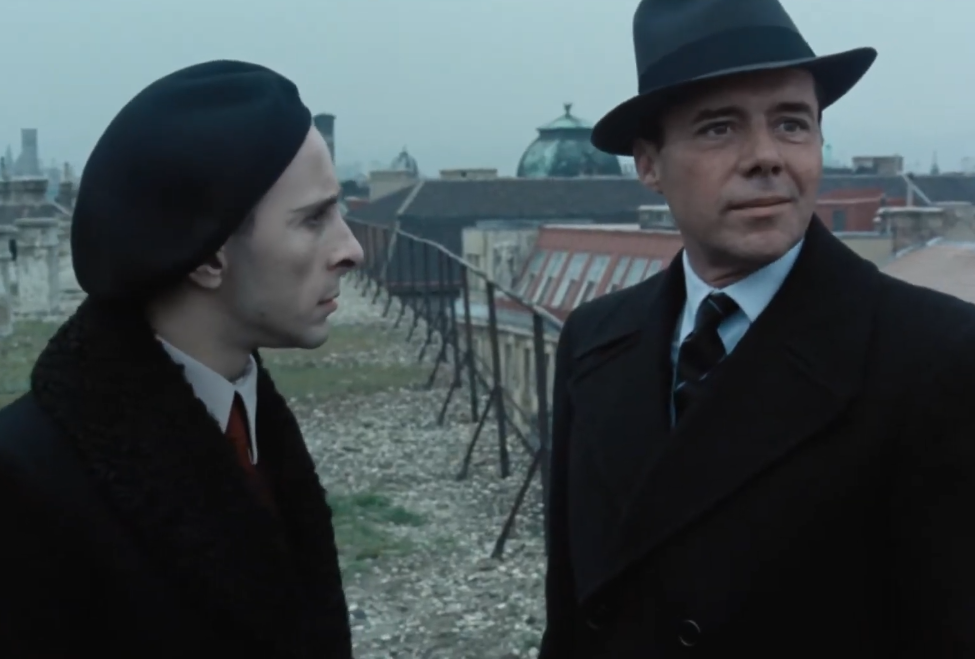 Lotar Film Productions, The Night Porter (1974)
Lotar Film Productions, The Night Porter (1974)
22. He Had A Soulmate
Everyone knew that Forwood was Bogarde’s friend, manager, and business partner... and they were roommates. But many fewer people knew that Forwood was Bogarde’s everything. He kept everyone, even friends and family, at a distance. Perhaps Bogarde was struggling with the memories of WWII or the constant battle to hide his true identity.
However, he didn’t distance himself from Forwood.
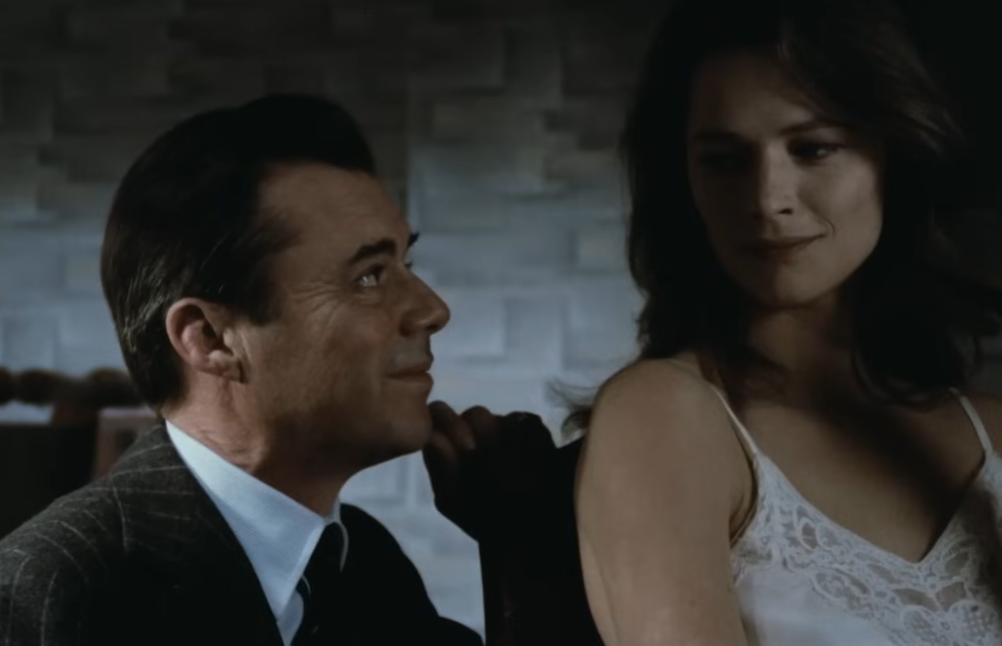 Lotar Film Productions, The Night Porter (1974)
Lotar Film Productions, The Night Porter (1974)
23. He Had A Perfect Relationship
Bogarde’s movies had nothing on his real love story. He tried to keep it a secret, but some people still found out. It became an open secret in his social circle and industry. He never told them, but they noticed. People couldn’t help but witness how perfect they were together.
One friend even revealed, “I never heard an argument between them”. But tragedy was coming for these soulmates.
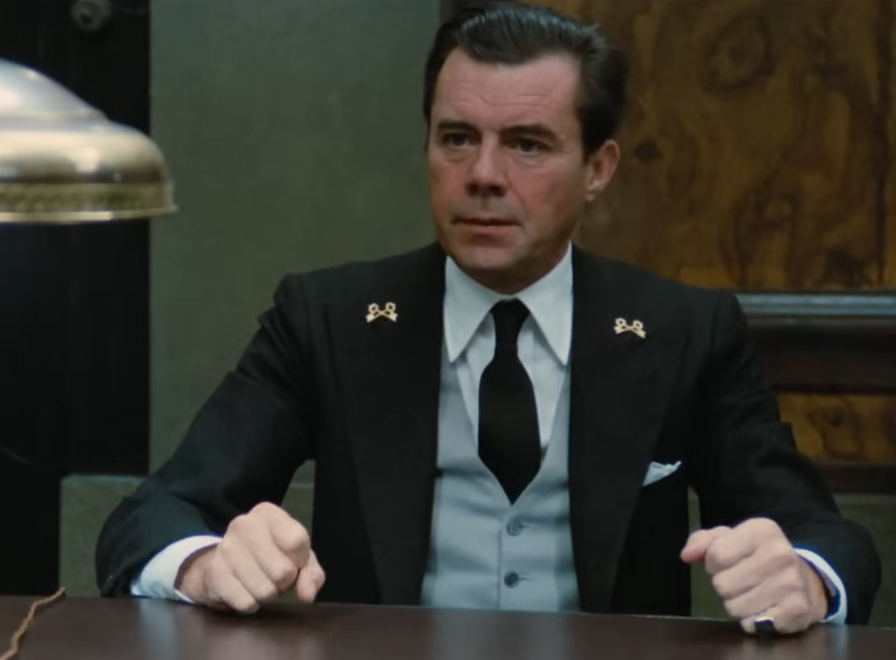 Lotar Film Productions, The Night Porter (1974)
Lotar Film Productions, The Night Porter (1974)
24. He Was Comfortable
In the meantime, Bogarde lived his best life on and off screen. Dirk and Forwood enjoyed domestic bliss on their country estates. They had their epic love, a zoo's worth of pets, exquisite furniture, and luxury cars. With Rank, Bogarde was an A-lister who churned out a few unchallenging—but profitable—movies every year.
But his next move shocked everyone.
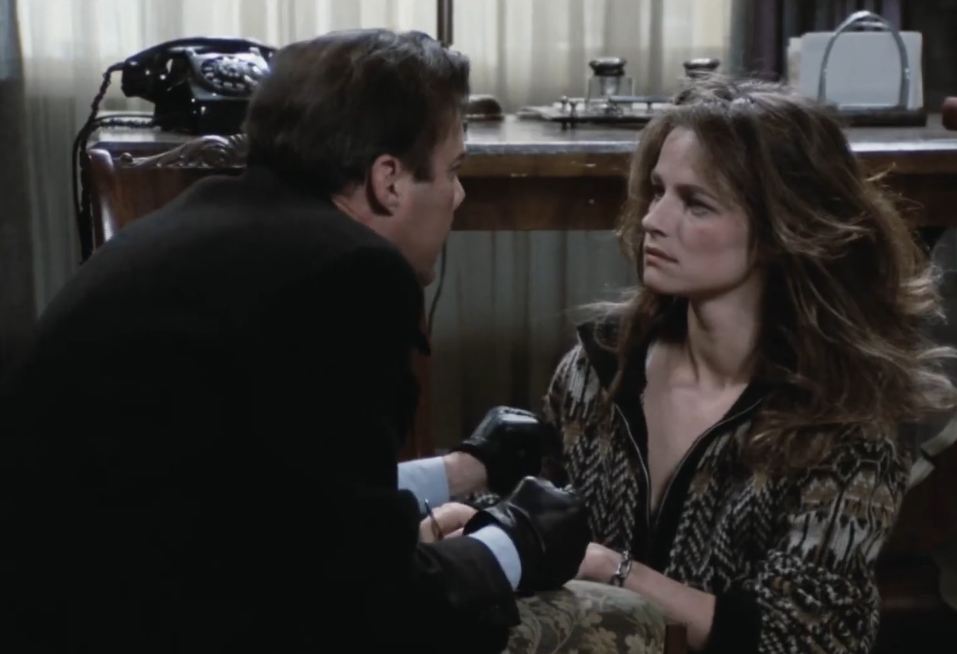 Lotar Film Productions, The Night Porter (1974)
Lotar Film Productions, The Night Porter (1974)
25. He Called It Quits
At 40 years old, Bogarde went through his biggest breakup. He ended a relationship even older and more formative than he and Forwood. I’m talking, of course, about the Rank Organisation. There were only so many boring and box-office bait movies Bogarde could make. He was too ambitious and too talented to be trapped.
Bogarde yearned for a challenge, and boy did he find one.
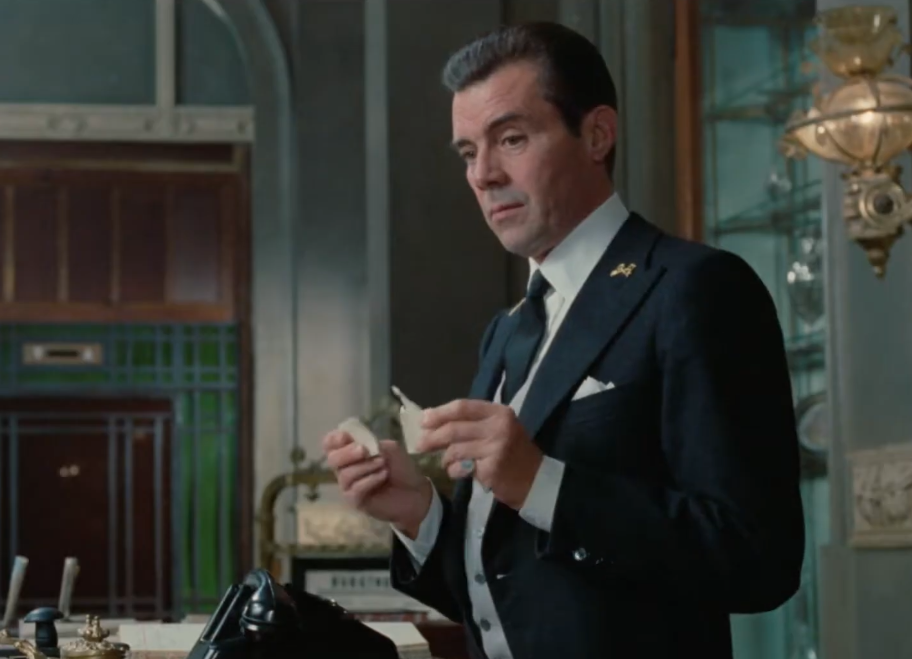 Lotar Film Productions, The Night Porter (1974)
Lotar Film Productions, The Night Porter (1974)
26. He Wanted A Challenge
Victim was a film in crisis. Many actors already fled from the lead role like it was radioactive. Turns out, it kind of was. The movie is about a blackmail ring terrorizing gay men. The main character is a lawyer—successful, married, and closeted—who helps them. Starring in Victim was a risk, even if the actor wasn’t gay. Enter, Bogarde.
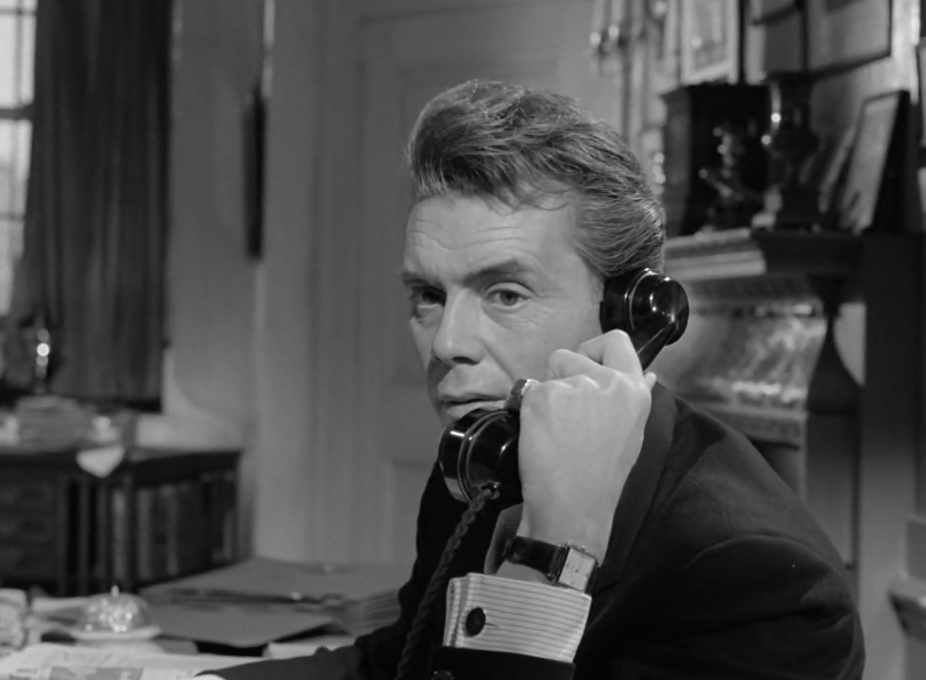 Allied Film Makers, Victim (1961)
Allied Film Makers, Victim (1961)
27. He Took The Biggest Risk
Victim was an offer Bogarde couldn't refuse. Perhaps it was an offer that he should have refused. The movie was taboo, destined for controversy, and could expose his deepest secret. Borgarde might’ve been looking for challenging roles, but this one could’ve been life-ruining. However, the role called out to Bogarde and he chased after it.
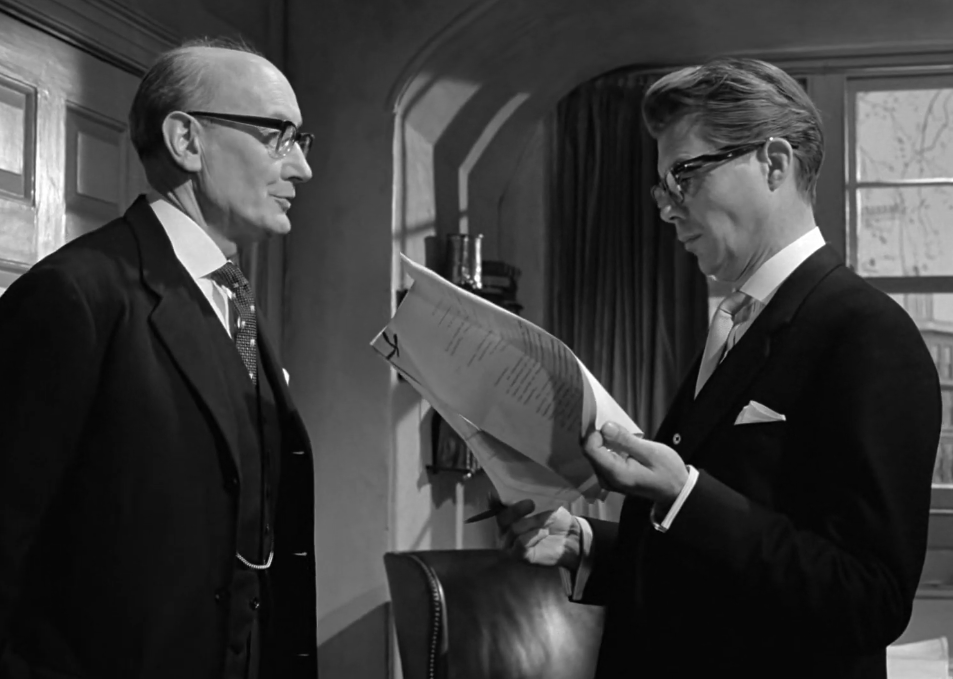 Allied Film Makers, Victim (1961)
Allied Film Makers, Victim (1961)
28. He Was Controversial
The reception was disappointing, but not surprising. A representative for the British Board of Film Censors berated the film for showing “shocking, distasteful, and disgusting” content. They gave Victim an adult-only rating, despite the lack of adult content. The American Motion Picture Production Code refused to approve it all.
But Victim still came out in 1961, and even more importantly, it still made history.
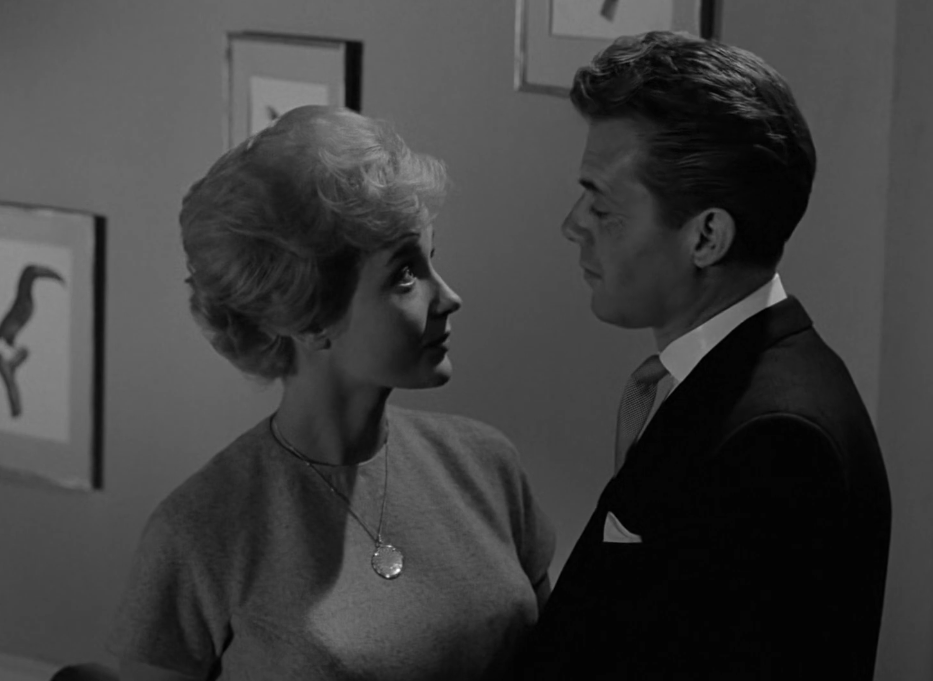 Allied Film Makers, Victim (1961)
Allied Film Makers, Victim (1961)
29. He Made History
Victim wasn’t just a gay film, it was the gay film. It was the first British movie to explicitly name "homosexuality". Not just that, Victim portrayed the experiences of the community with compassion. The film—and Bogarde in particular—received rave reviews.
One critic declared, “Dirk Bogarde has a role that not only shows what a brilliant actor he is—but what a courageous one he is, too”. They weren’t wrong.
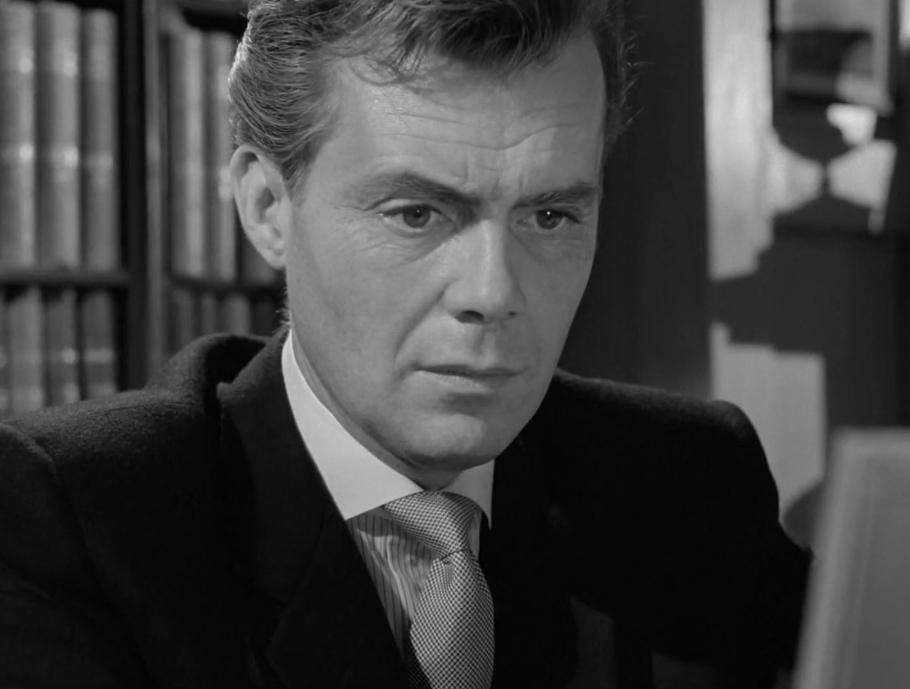 Allied Film Makers, Victim (1961)
Allied Film Makers, Victim (1961)
30. He Made A Difference
Victim didn’t just make film history, it made a difference. It helped increase the number of Brits supporting reform from 48% to 63%. In 1967, being gay was decriminalized. Lord Arran led the effort to make this happen. The politician sent Bogarde a heartfelt letter to thank him for his movie and his bravery. Bogarde served his country in WWII, and he did it again in Victim.
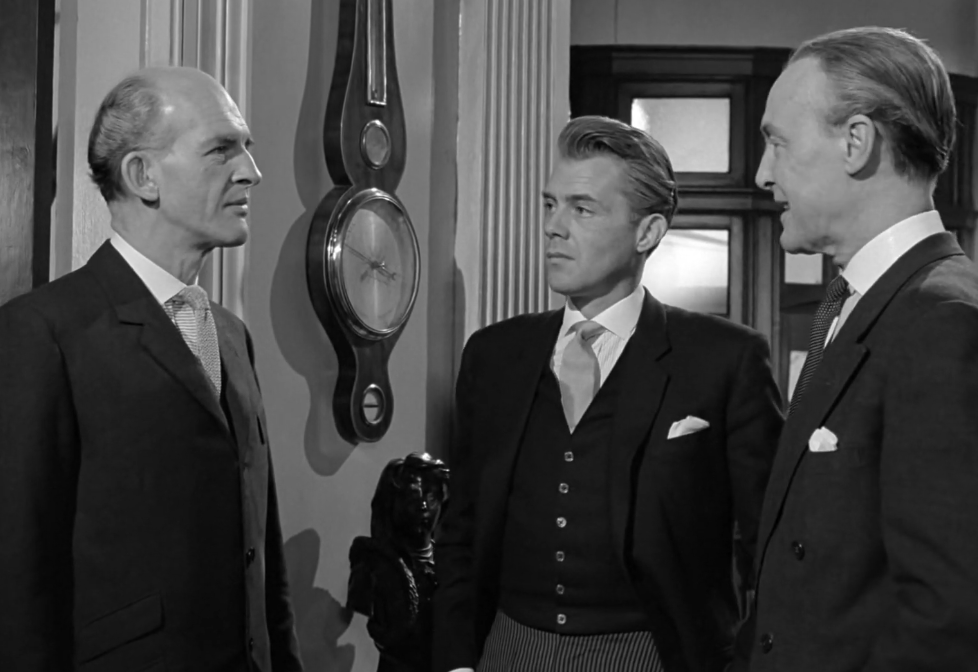 Allied Film Makers, Victim (1961)
Allied Film Makers, Victim (1961)
31. He Was Satisfied
Bogarde gambled with his career, reputation, and life. It paid off. This film was “the first time I was playing my own age. At Rank, the fixed rule was that I had to look pretty. Victim ended all that nonsense”. Bogarde wanted to reinvent himself as an actor. So he did. But Bogarde accomplished more than he ever thought possible.
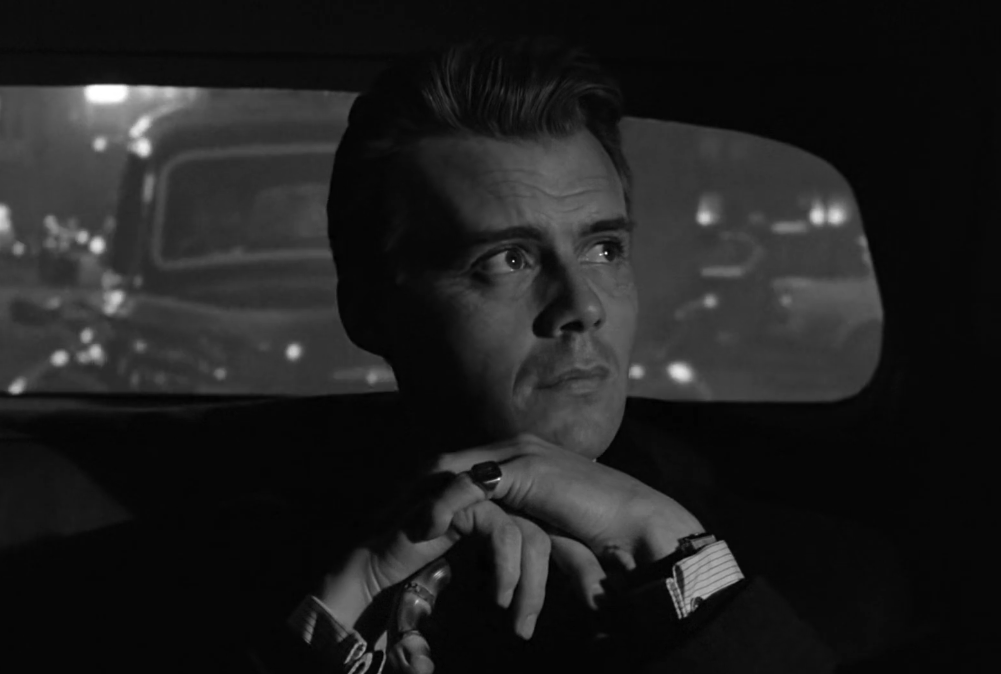 Allied Film Makers, Victim (1961)
Allied Film Makers, Victim (1961)
32. He Couldn’t Believe It
Victim was high risk, but high reward. But Bogarde had no way of knowing this: He just wanted to make cool movies after escaping Rank’s gilded age. Victim turned out to be “the wisest decision I ever made in my cinematic life. It is extraordinary … to believe that this modest film could ever have been considered courageous, daring, or dangerous to make. It was, in its time, all three”.
But not all his controversial roles aged as well.
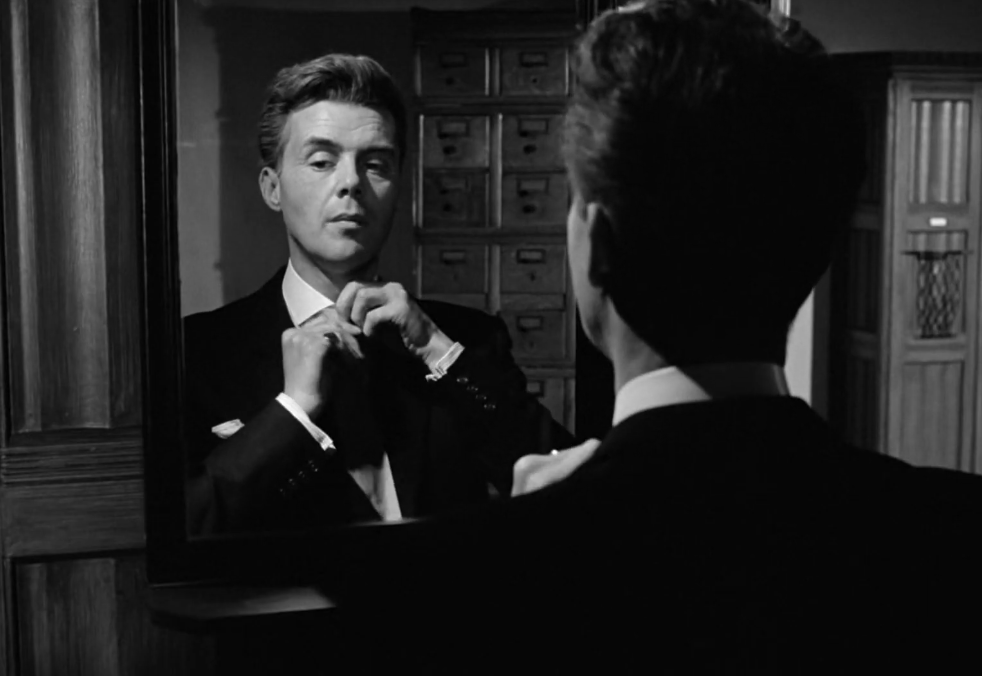 Allied Film Makers, Victim (1961)
Allied Film Makers, Victim (1961)
33. He Took Risks
Bogarde became known for taking edgy roles that challenged morality. But he might’ve taken it too far sometimes. In the still notorious The Night Porter (1974), Bogarde plays a man who doesn’t just hide his Nazi past—but also gets into a brutal relationship with a concentration camp survivor.
It’s not just controversial, it’s confusing when we consider a crucial fact about Bogarde.
 Lotar Film Productions, The Night Porter (1974)
Lotar Film Productions, The Night Porter (1974)
34. He Was Prejudiced
Bogarde’s experiences in WWII left him with lifelong scars, nightmares, and prejudices. He could never see Germany—its people—the same way. Not after he saw the concentration camps. Bogarde’s hatred was so severe that he confessed that he'd rather exit an elevator than be in such close proximity to a German.
So why did he even take this role? Well, it’s messy.
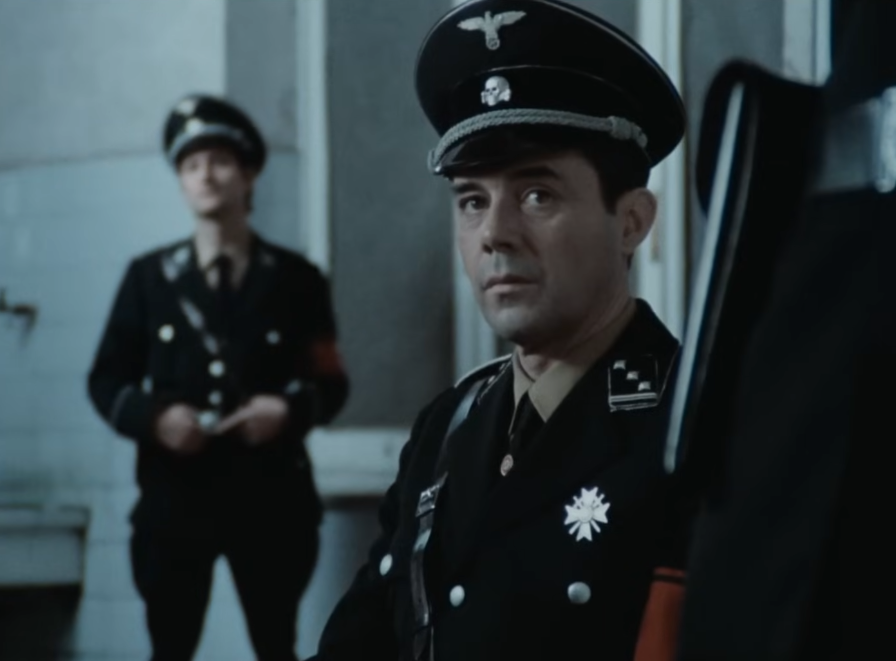 Lotar Film Productions, The Night Porter (1974)
Lotar Film Productions, The Night Porter (1974)
35. He Was Fascinated
Bogarde’s biographer reveals, "He'd seen a lot of bad stuff. The darker side of humanity had been unveiled to him and he knew how badly people could treat each other in life. He was shielded from a lot of that because he had a very happy relationship himself, but he was fascinated by the depths that people would go to”.
But filming The Night Porter turned out to be a beast.
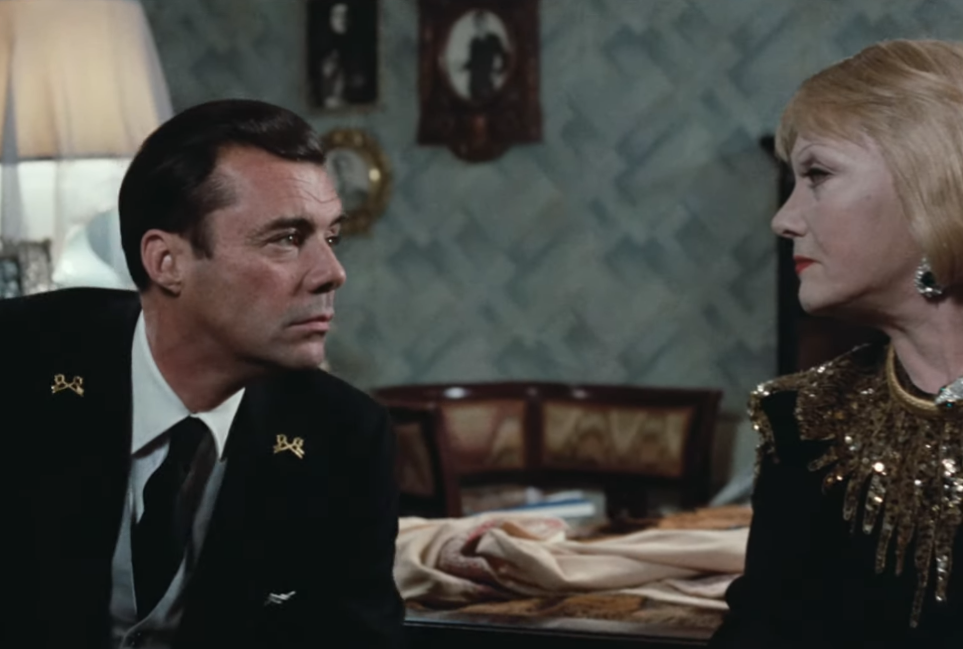 Lotar Film Productions, The Night Porter (1974)
Lotar Film Productions, The Night Porter (1974)
36. He Was Triggered
The Night Porter was hard to watch, but even harder to film. On the first day, the director decided to film the WWII scenes. Bogarde had spent almost three decades since his service trying to forget. But just like that, his darkest memories came flooding back. He was seriously affected by day two.
Bogarde made the art he wanted, but suffered for it. He couldn’t do it forever.
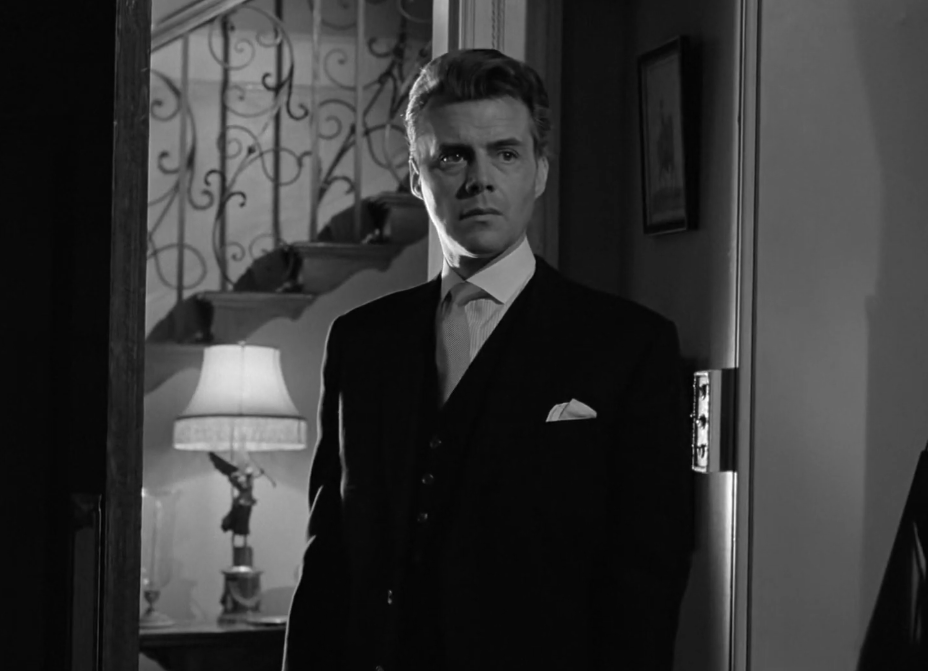 Allied Film Makers, Victim (1961)
Allied Film Makers, Victim (1961)
37. He Changed Careers
In his late 50s, Bogarde decided it was time for another life change. He declared, “I am too old, too rich, and far, far too distinguished… I really felt that I had done all I wanted to for the Cinema”. He retired semi-permanently from acting. While some roles lured him out once in a while, Bogarde focused on writing. But he left some fans wondering what could’ve been.
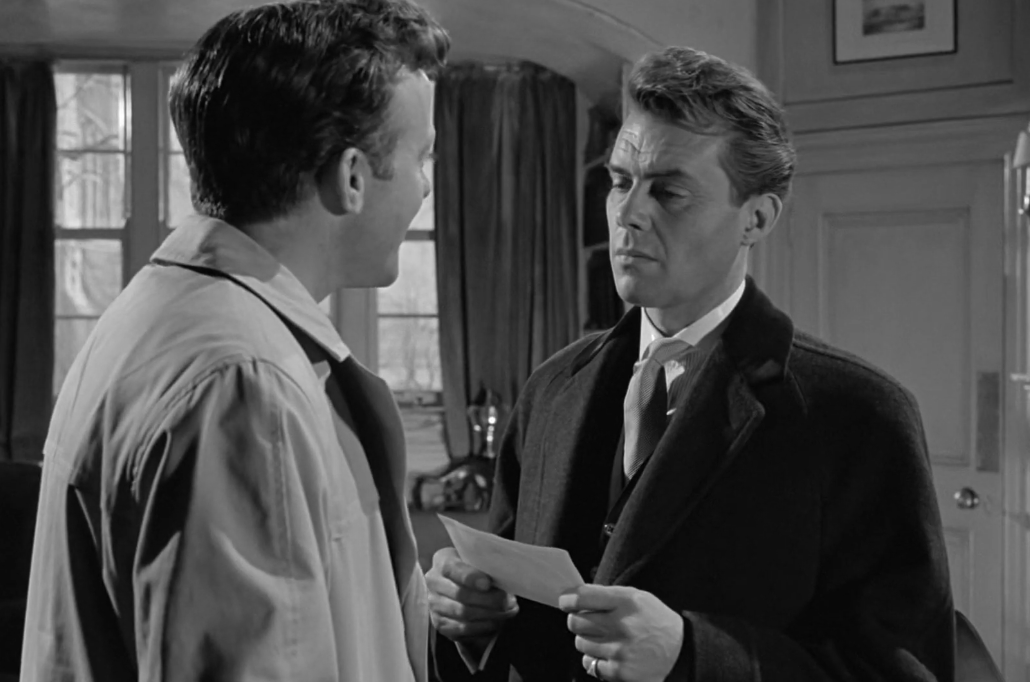 Allied Film Makers, Victim (1961)
Allied Film Makers, Victim (1961)
38. He Had Unknown Potential
Some cinephiles couldn’t help wondering what else Bogarde could’ve accomplished if things played out differently. Bogarde flirted with Hollywood, but couldn’t commit. He didn’t want Hollywood. Following a studio’s rules was so 1950. But in return, Hollywood didn’t know if it really wanted him.
Bogarde may have also been one of the best actors to never win an Oscar. One critic even declared, "If he doesn't win an Oscar, there's no justice".
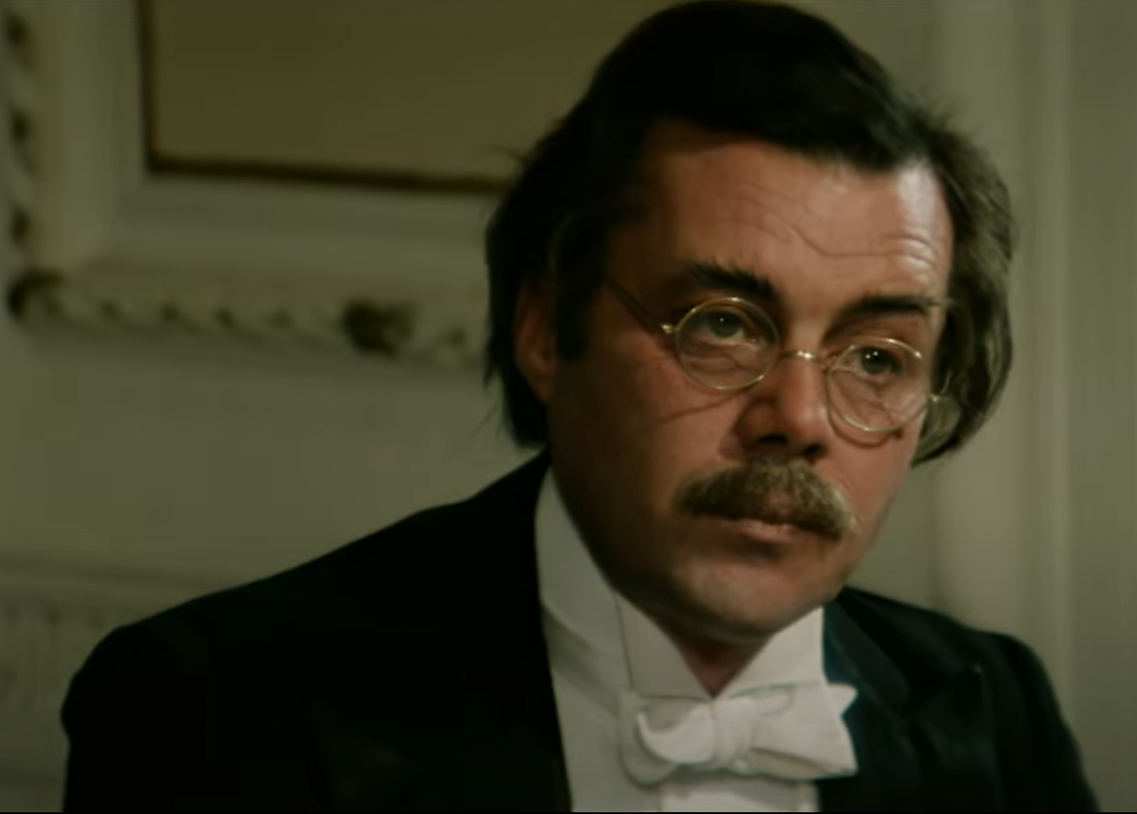 Warner Bros., Death in Venice (1971)
Warner Bros., Death in Venice (1971)
39. He Couldn’t Stop Writing
Six novels, ten memoirs, and countless articles made Bogarde a respected writer. But some couldn’t help feeling dissatisfied. It wasn’t how Bogarde wrote, it was what he wrote about. Bogarde wrote so much, yet shared so little. Some didn’t hold back: “You are very good indeed at saying an interesting bookful without in fact saying anything really personal at all”.
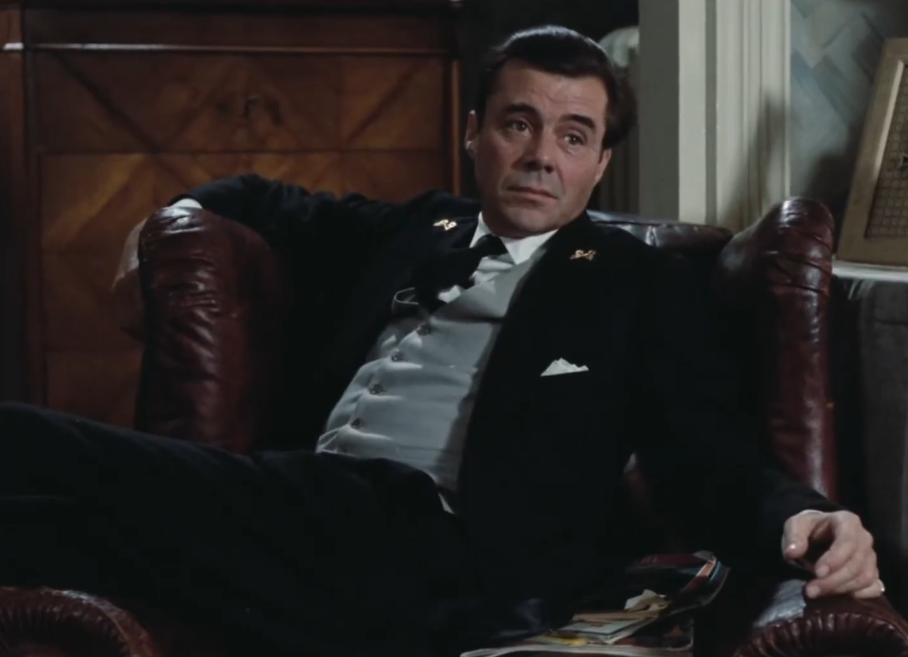 Lotar Film Productions, The Night Porter (1974)
Lotar Film Productions, The Night Porter (1974)
40. He Was Furious
Others went even further and accused Bogarde of deception—of not being his true self. Bogarde didn’t take it well, and announced, ”I’m not a liar. I’ve never cheated an audience in my life”. Bogarde also insisted he shared more than enough, “if you’ve got your wits about you, you will know who I am”. He had a lifetime of art to back him up.
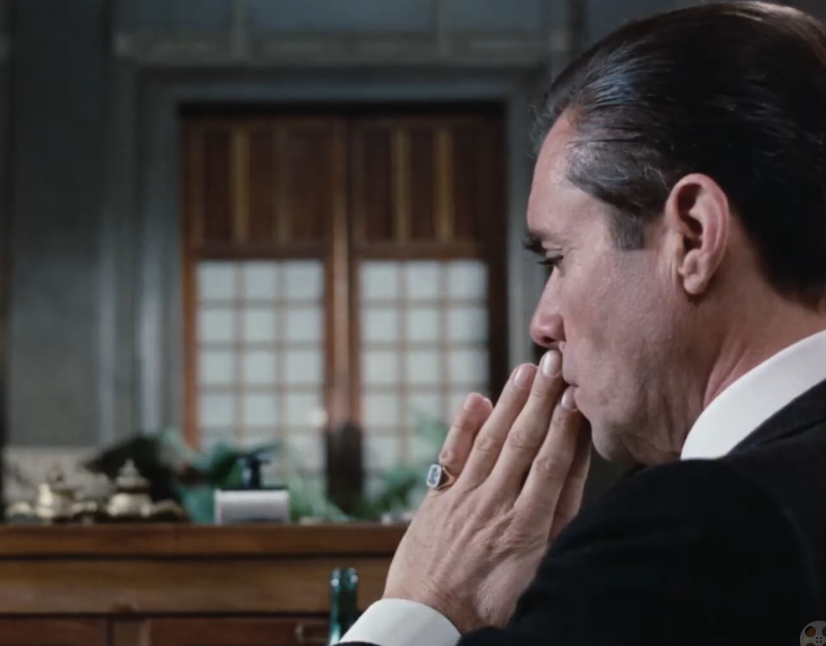 Lotar Film Productions, The Night Porter (1974)
Lotar Film Productions, The Night Porter (1974)
41. He Felt Helpless
Bogarde already knew pain and grief, but nothing like this. He and Forwood both battled health issues as they aged, but his lover got the worst of it. Bogarde could only watch as Parkinson’s and cancer transformed his partner of 50 years into a “paralysed, speechless creature”.
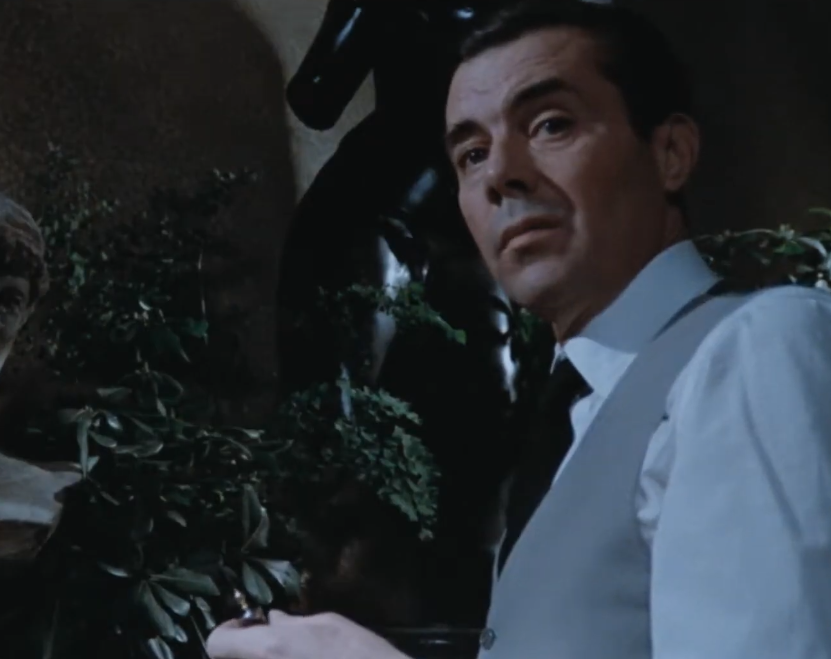 Lotar Film Productions, The Night Porter (1974)
Lotar Film Productions, The Night Porter (1974)
42. He Lost His Other Half
Bogarde promised to “help” his partner if the cancer was too painful and too terminal. They agreed there were worse things than dying. In 1988, Forwood fell into a coma and never woke up. Bogarde didn’t need to fulfill his promise, but he did need to remake his life. But it wasn’t by choice this time.
He confessed, “Now I must try to begin to live again: and alone. The house is very empty without him. And my life also”.
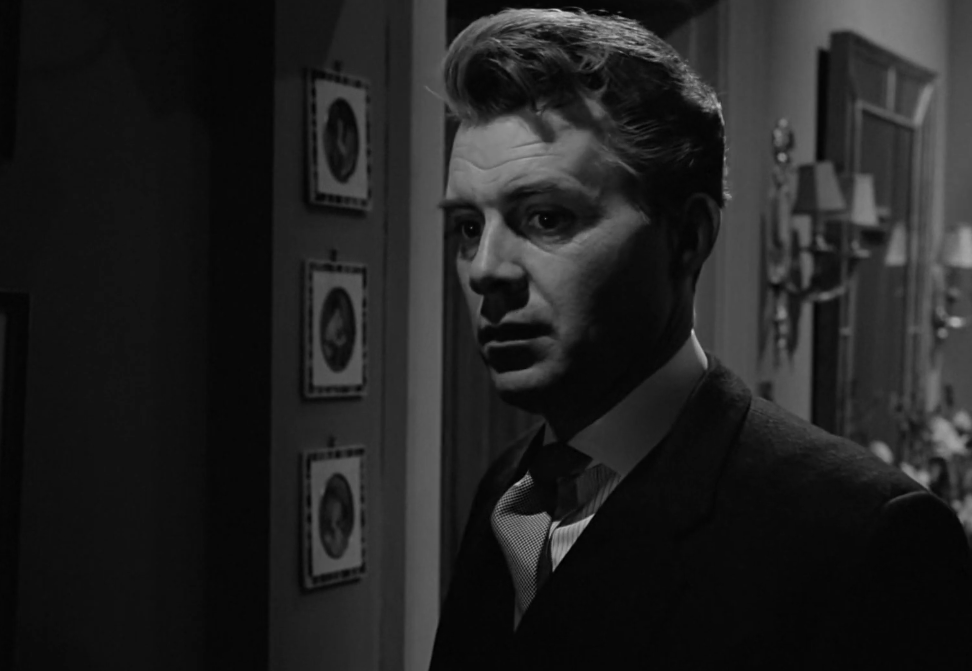 Allied Film Makers, Victim (1961)
Allied Film Makers, Victim (1961)
43. He Chose Isolation
He put on a brave—and lonely—face. Bogarde swore that he didn’t need, or want, anyone in his life—and that he never had. After a lifetime spent with Forwood and distancing himself from everyone else, no one could fill his partner’s shoes. While Bogarde still had friends and family, it wasn’t enough.
They visited for dinner, but never stayed over. But this lone wolf couldn’t keep it up forever.
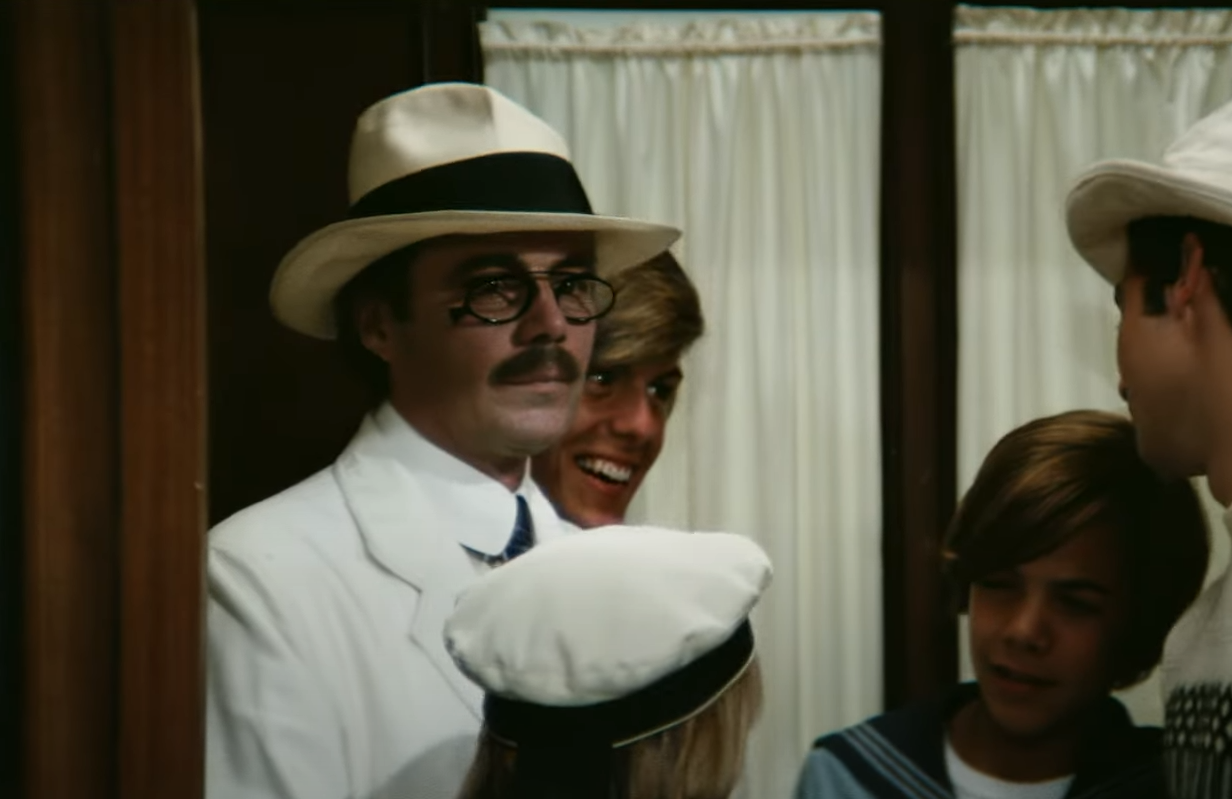 Warner Bros., Death in Venice (1971)
Warner Bros., Death in Venice (1971)
44. He Was Unwell
The suffering Bogarde witnessed in WWII, and the grief he experienced in watching his life partner waste away, convinced him to champion euthanasia. Bogarde wondered if—or when—he had to make the call for himself. Then, in 1996, he underwent heart surgery that may have done more harm than good.
They'd barely wheeled the 75-year-old out of surgery when he had a stroke. A massive one.
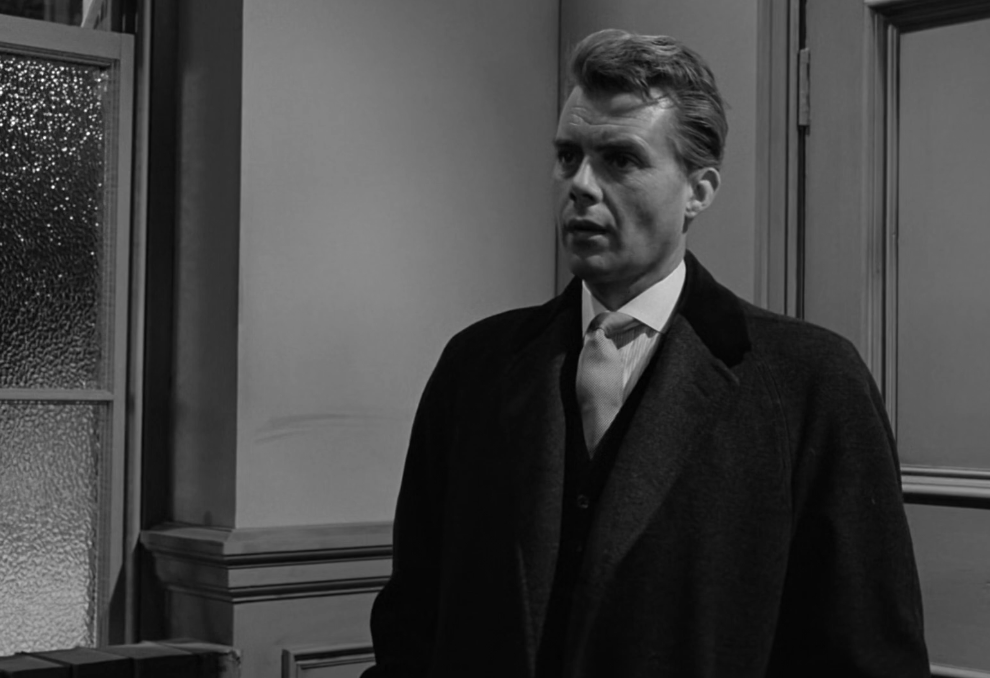 Allied Film Makers, Victim (1961)
Allied Film Makers, Victim (1961)
45. He Didn’t Want To Live
Bogarde’s doctor was convinced that he was a goner, but he somehow woke up. However, something was seriously wrong. Many things, actually. The stroke paralyzed his left side, impaired his speech, and weakened his body. Bogarde cherished his independence. But he couldn’t take care of himself now. Bogarde informed his specialists, “I want euthanasia”.
But that wasn’t the end of Bogarde’s story.
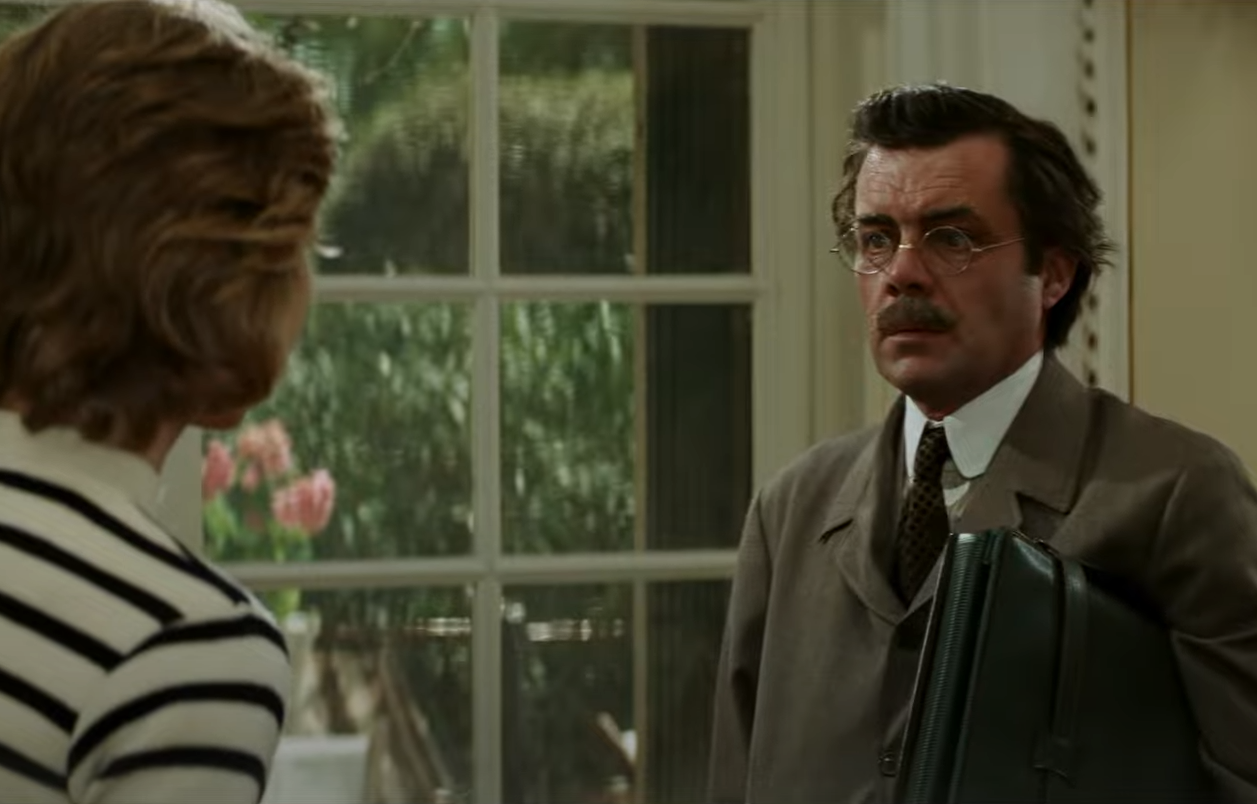 Warner Bros., Death in Venice (1971)
Warner Bros., Death in Venice (1971)
46. He Needed Help
Turns out, he wasn’t ready to let go, and his loved ones weren’t either. His life, however, would be a lot different. Bogarde accepted that he needed help. But not just anyone would do. Enter, Sheila Maclean. She was his caretaker and his closest relationship since Forwood. It also lasted until the end.
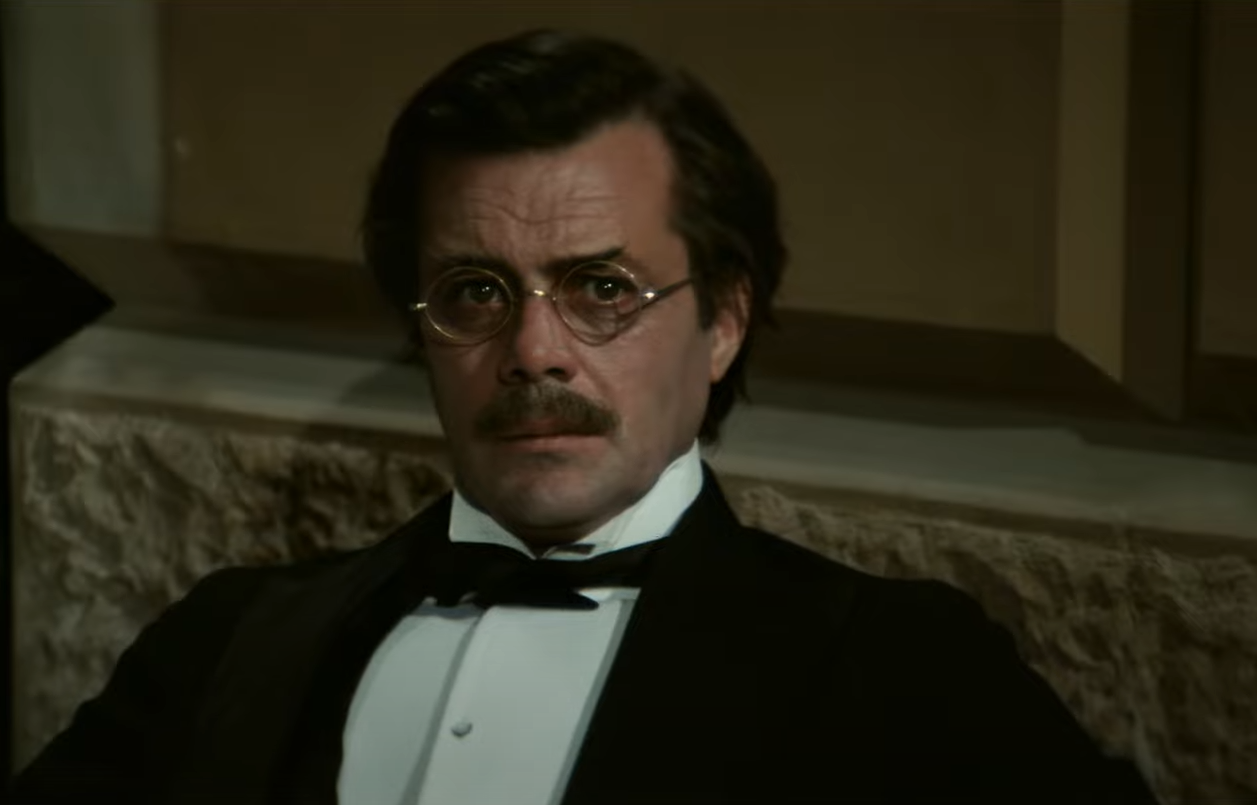 Warner Bros., Death in Venice (1971)
Warner Bros., Death in Venice (1971)
47. He Passed
Everyone deserves a Sheila in their life. She made sure Bogarde spent his final years doing what he loved the most. He read, he wrote, and saw loved ones. When he passed at 78 from a heart attack, he had reached some sense of peace. Bogarde’s loved ones took it from there. They went on a mission to spread his ashes at the French villa Bogarde and Forwood had once shared.
When Bogarde passed, many of these memories and truths went with him.
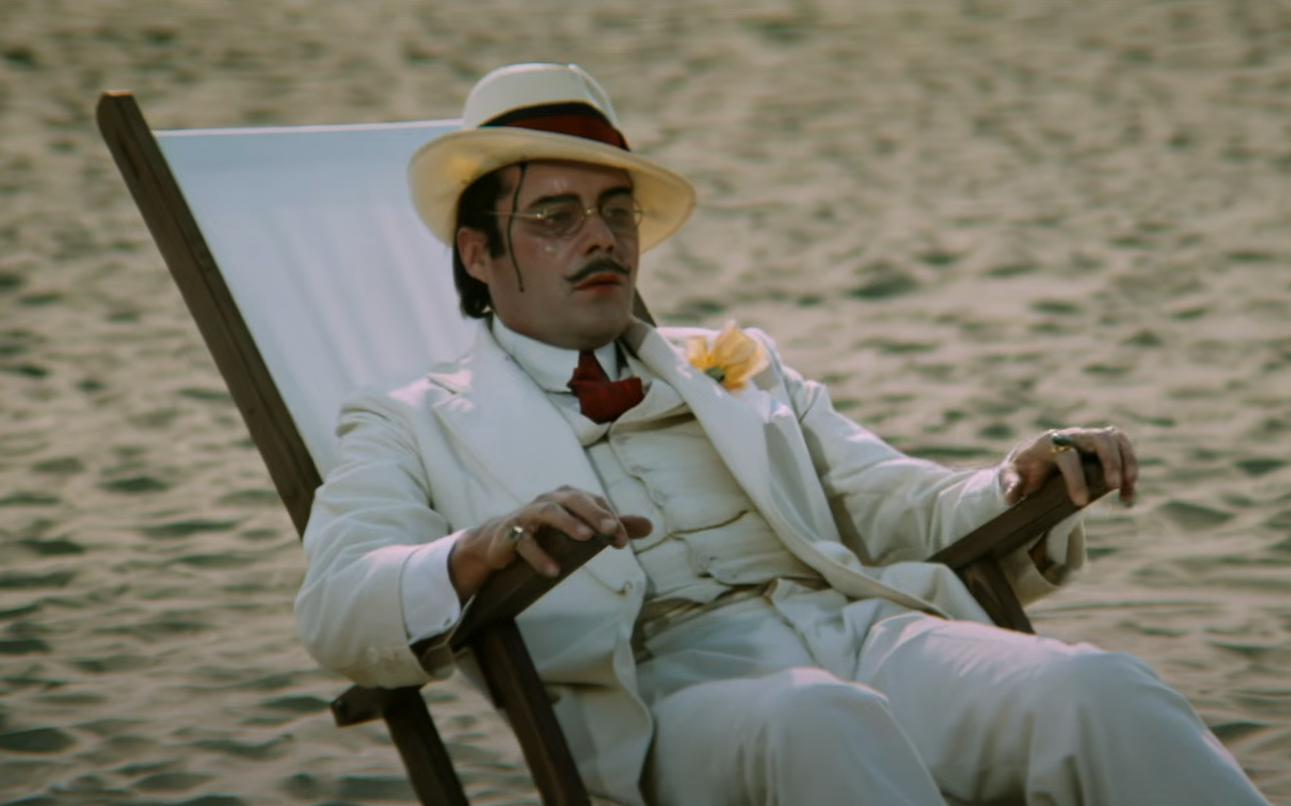 Warner Bros., Death in Venice (1971)
Warner Bros., Death in Venice (1971)
48. He Was Accused Of Lying
Bogarde’s experiences in WWII shaped him. But some were skeptical that Bogarde was really one of the first liberators of the camp. They thought it was possible that he, like many other well-meaning officers, read about the atrocities and convinced themselves they were there.
After researching for years, Bogarde’s biographer John Coldstream concluded that he at least stepped foot into Bergen-Belsen. As for everything else, only Bogarde knows. But we know his pain was real.
49. He Got The Last Word
The world became more open-minded, but Bogarde didn’t become any more open. In 1986, he did the unthinkable and torched all the records of his life: WWII journals, letters, papers, everything. Bogarde even shredded all of Forwood’s documents for good measure.
Borgarde ensured their secrets would leave the Earth when they did. To him, the truth lay in his art. It always did. The world doesn’t need to know the rest.
50. He’s One-Of-A-Kind
A list of every single award, positive review, box office dollar, or honorary degree earned by Dirk Bogarde would be impressive, but inaccurate. It wouldn’t capture the essence of a true actor like him—someone who challenged himself, and challenged cinema. He helped countless people along the way.
In WWII, he helped his country and the Allies. In Doctor in the House, he helped kids get over their fear of hospitals. In Victim, he helped countless men live their truth. There are many actors—but there will only be one Dirk Bogarde.

